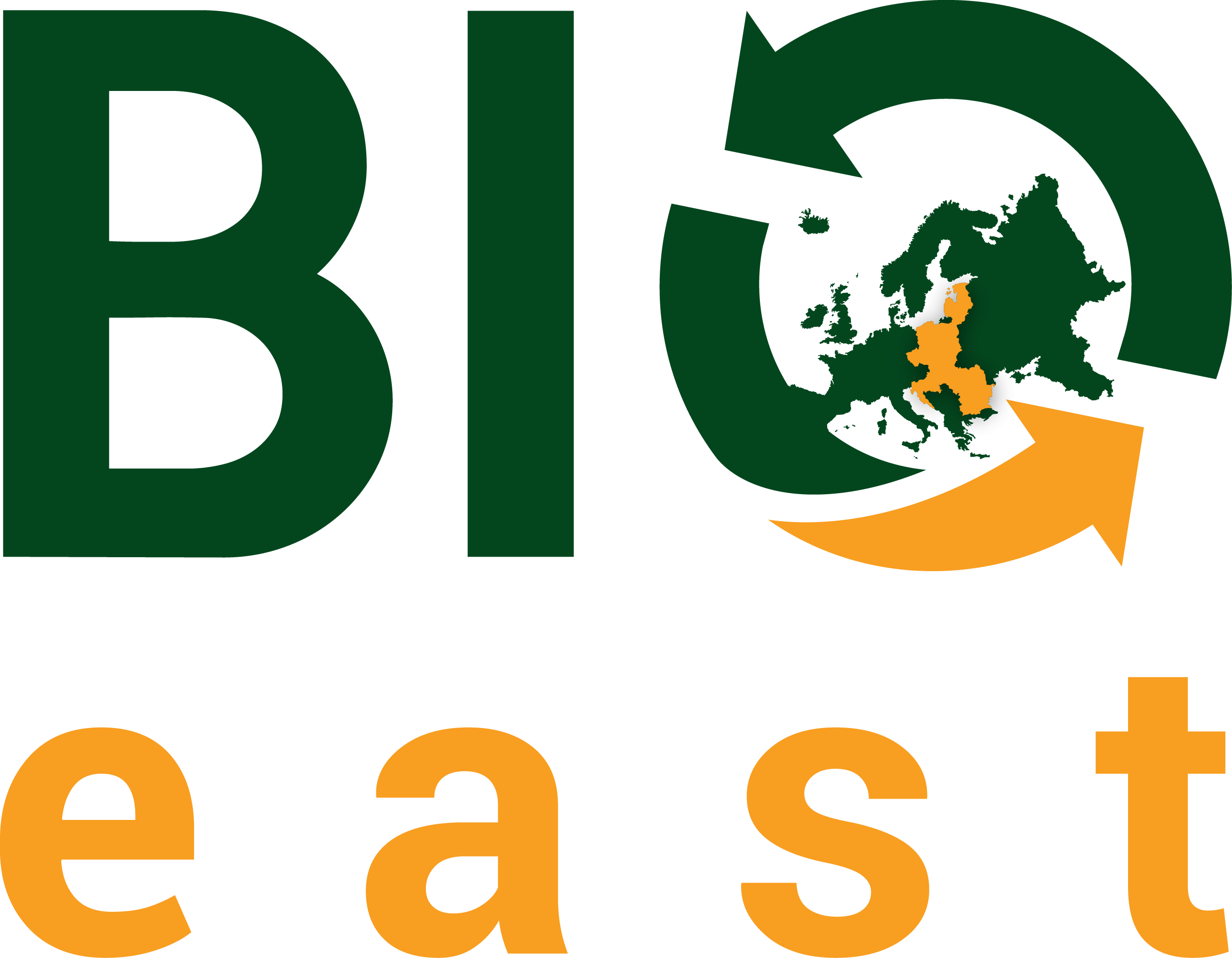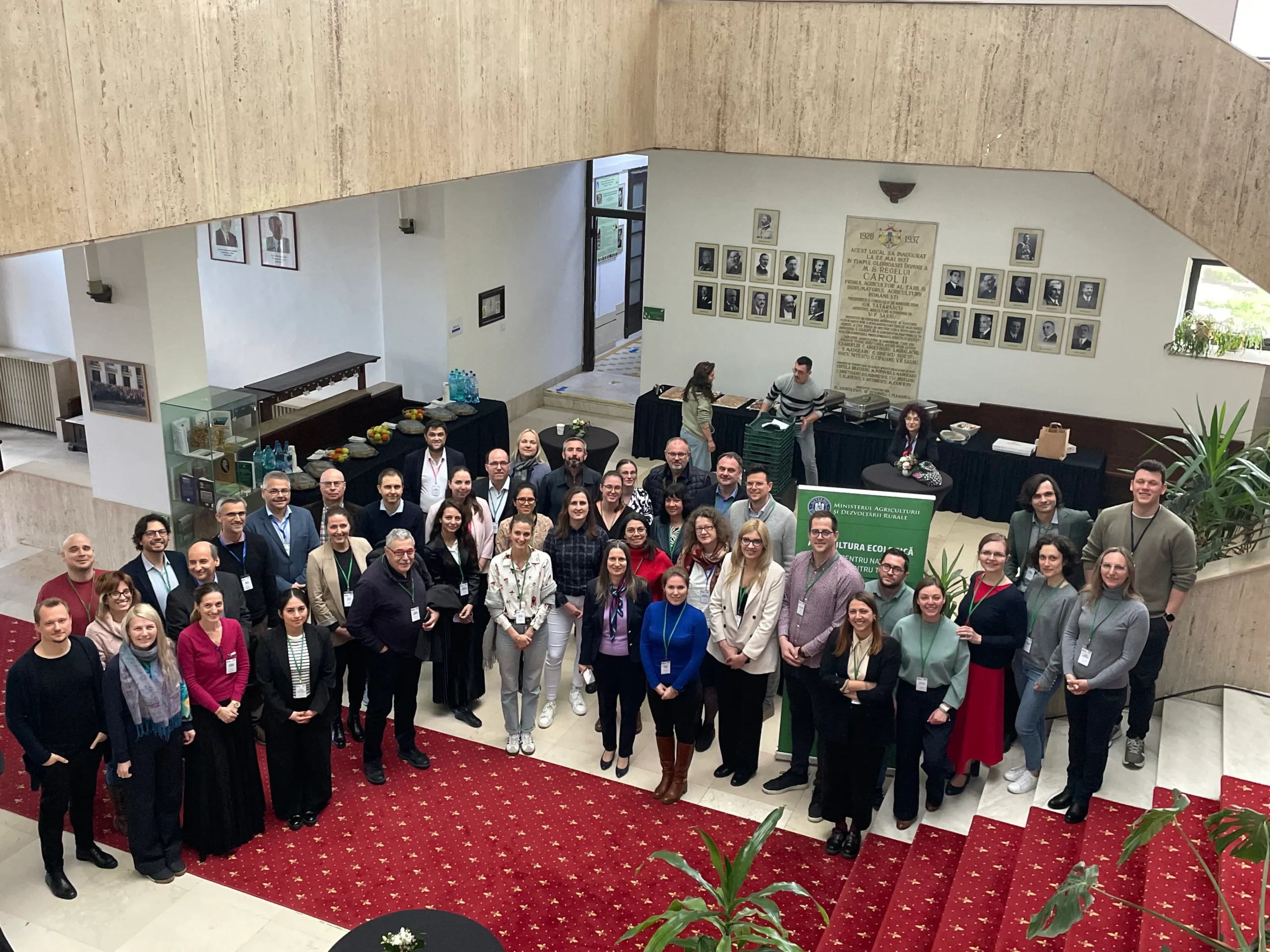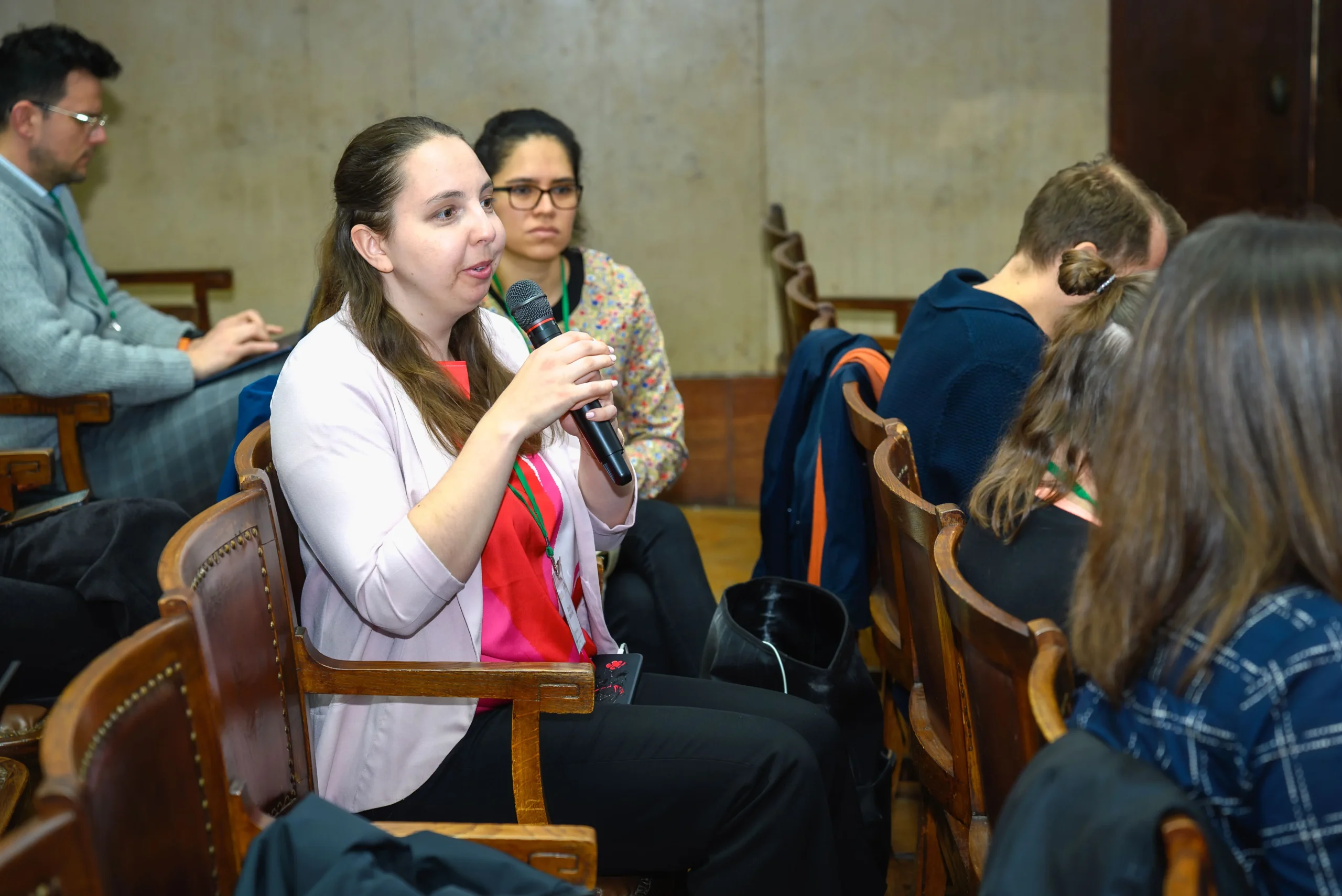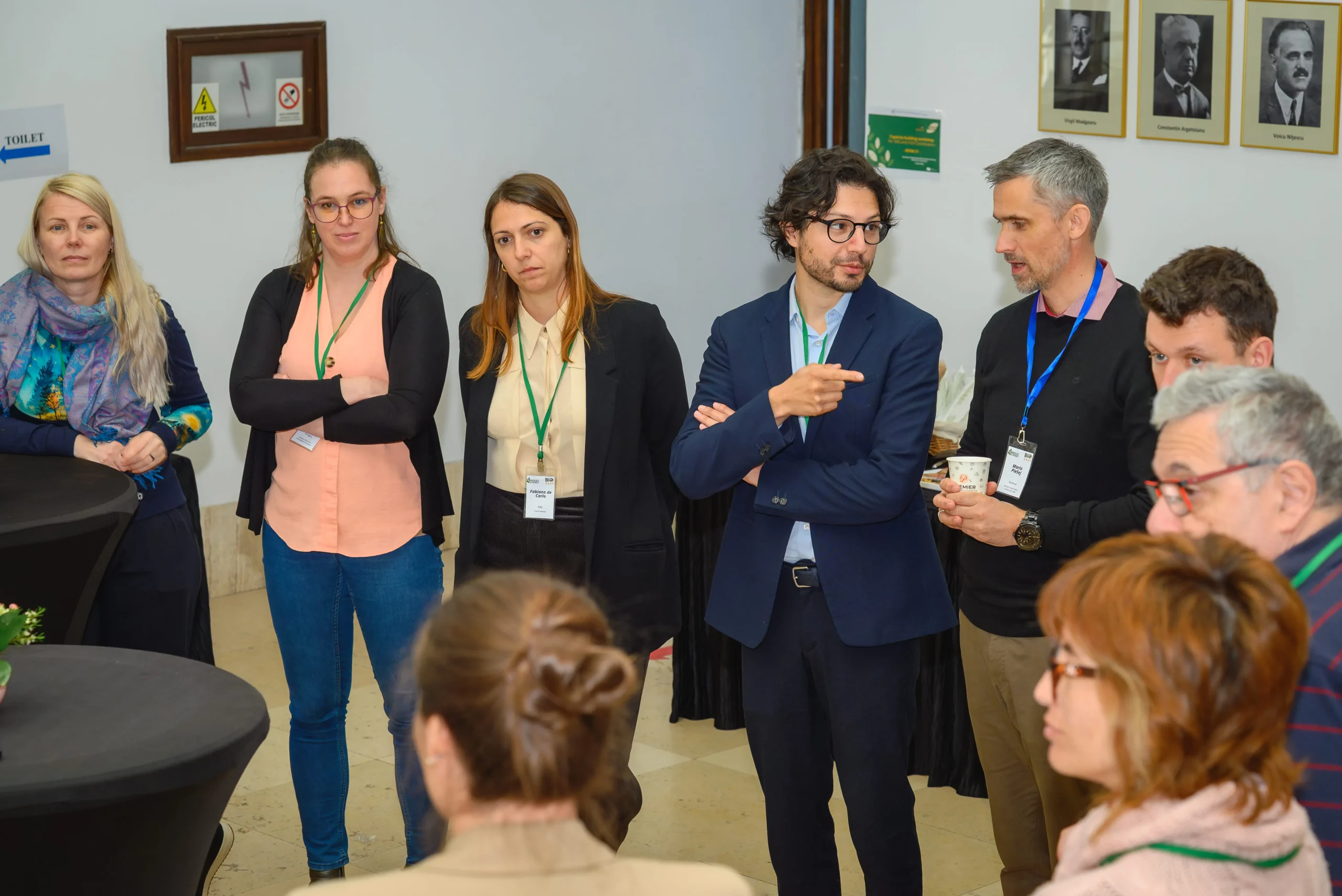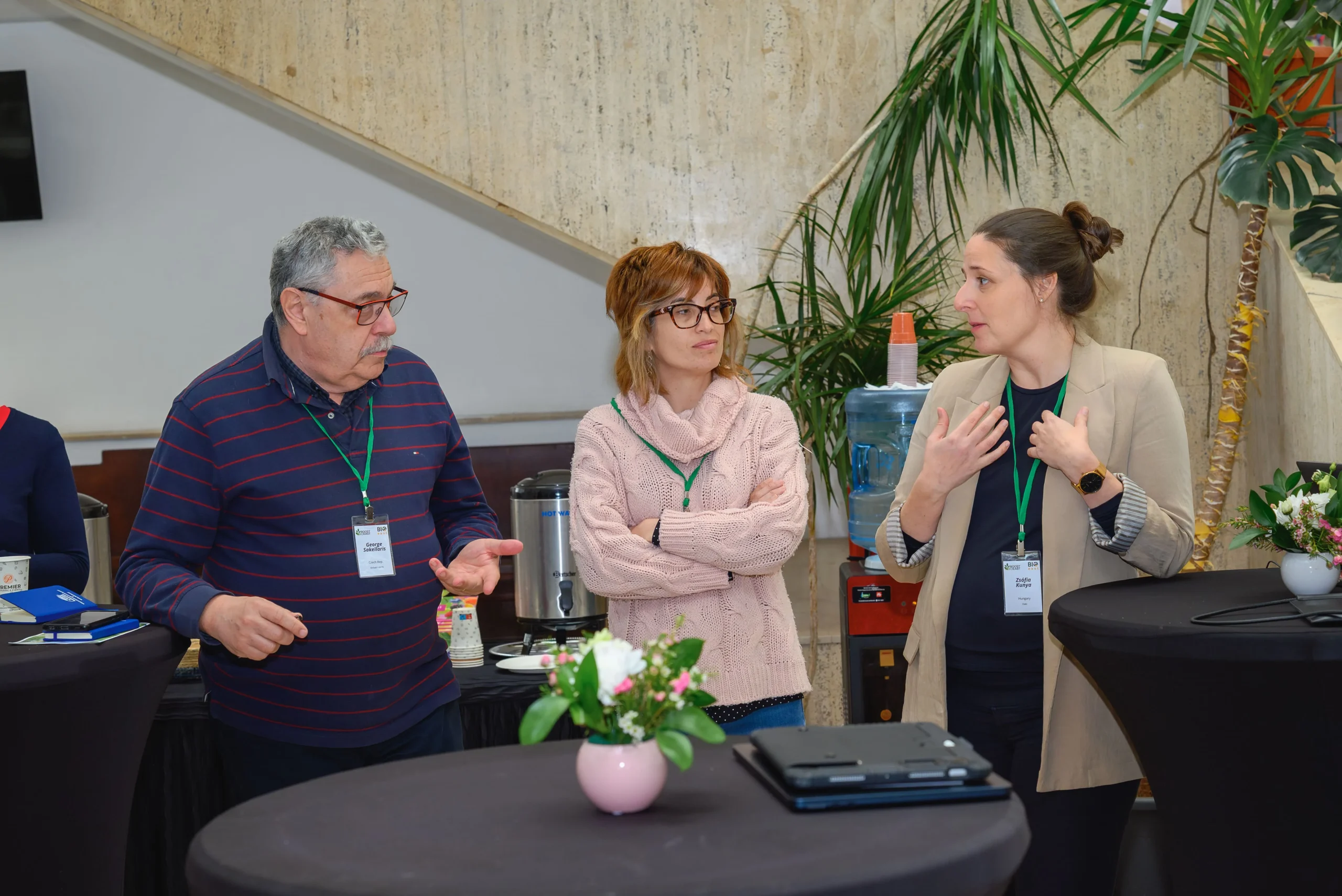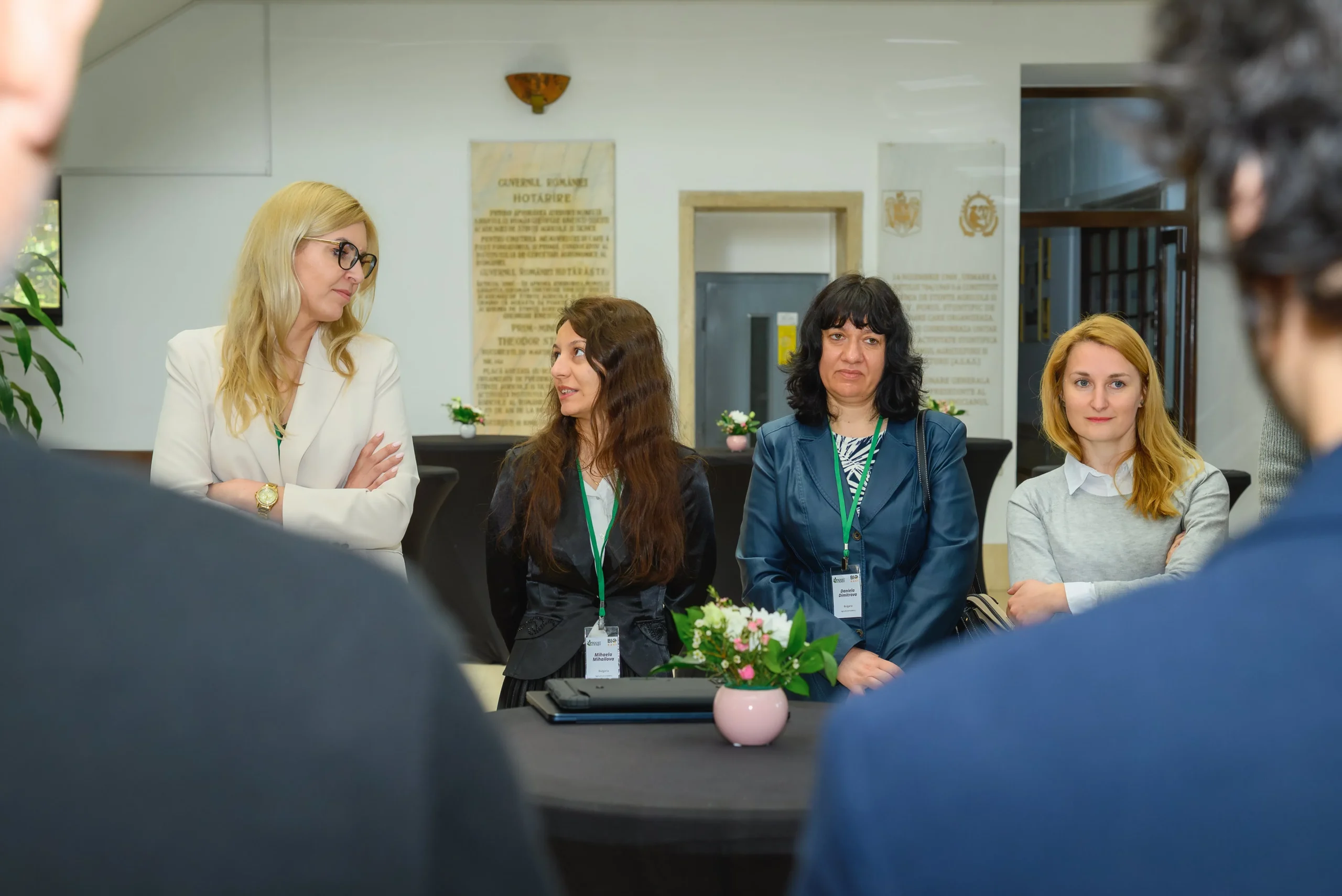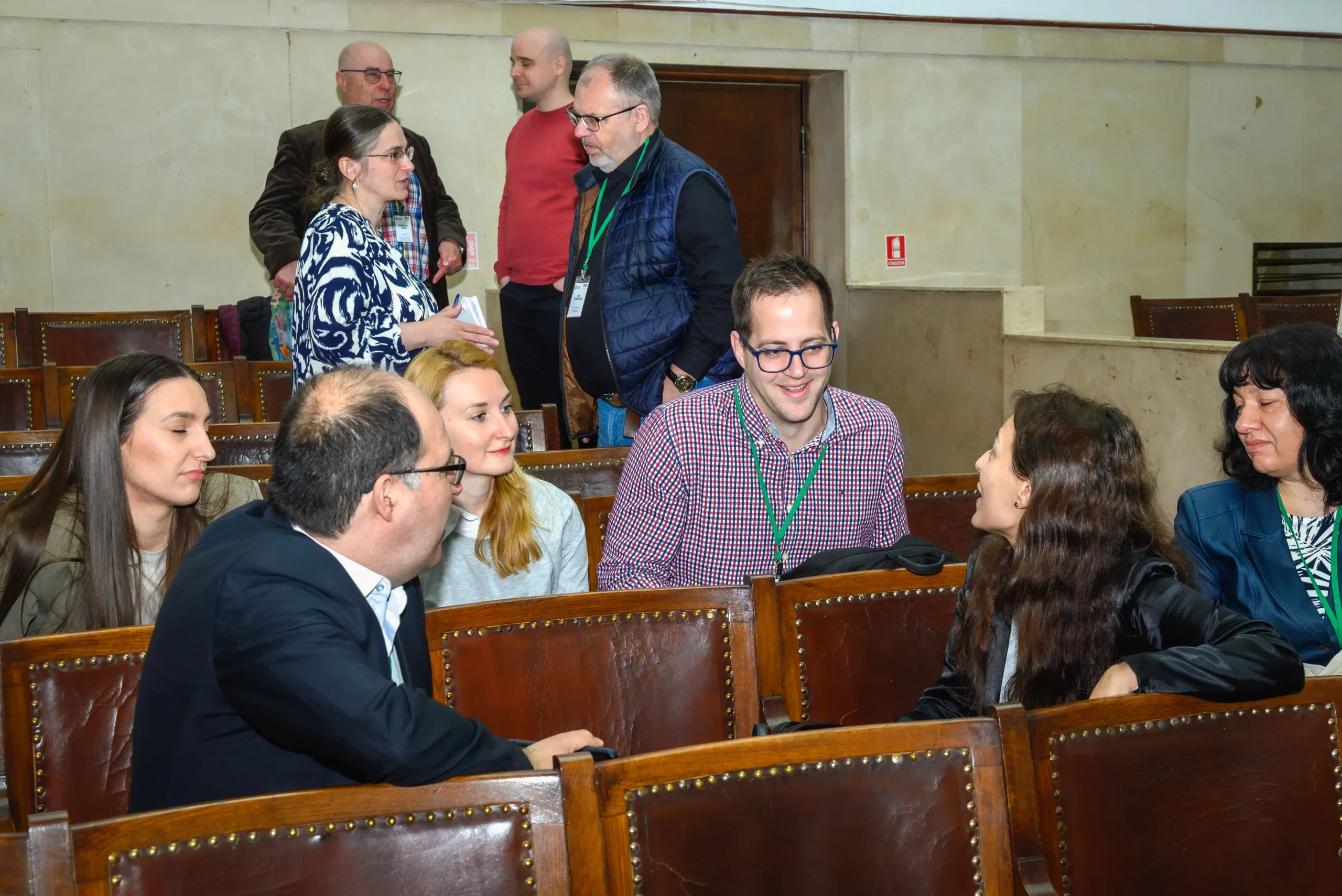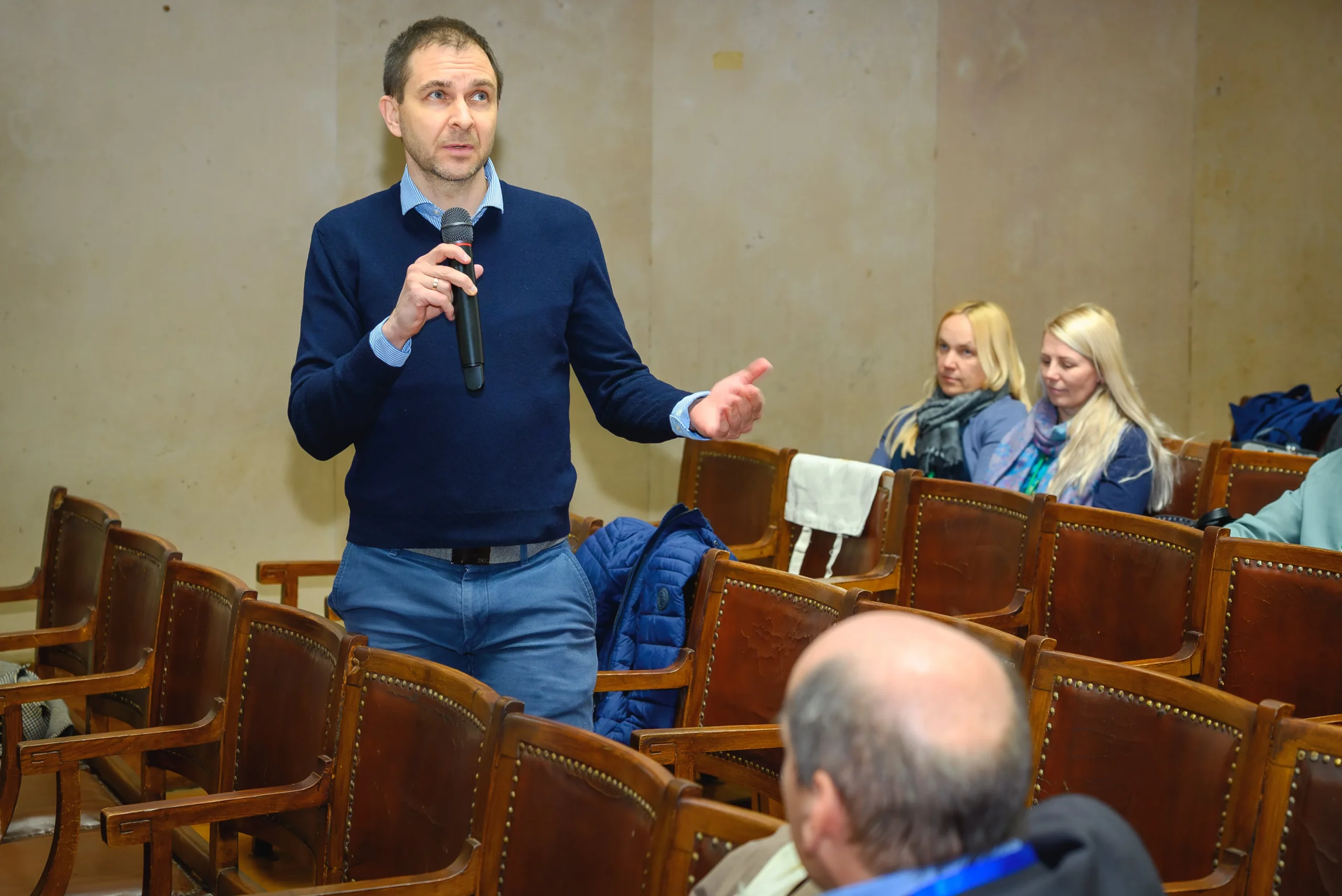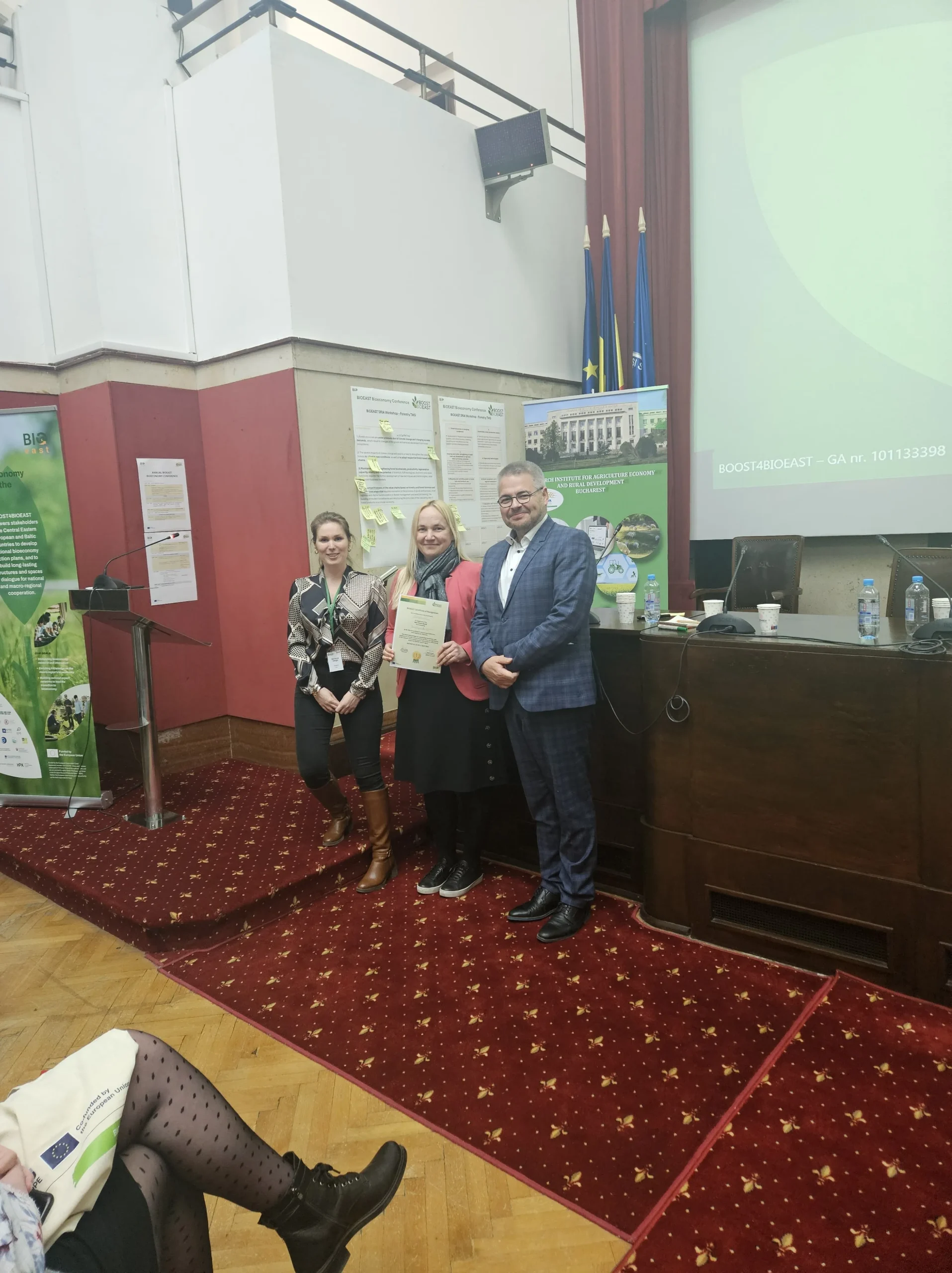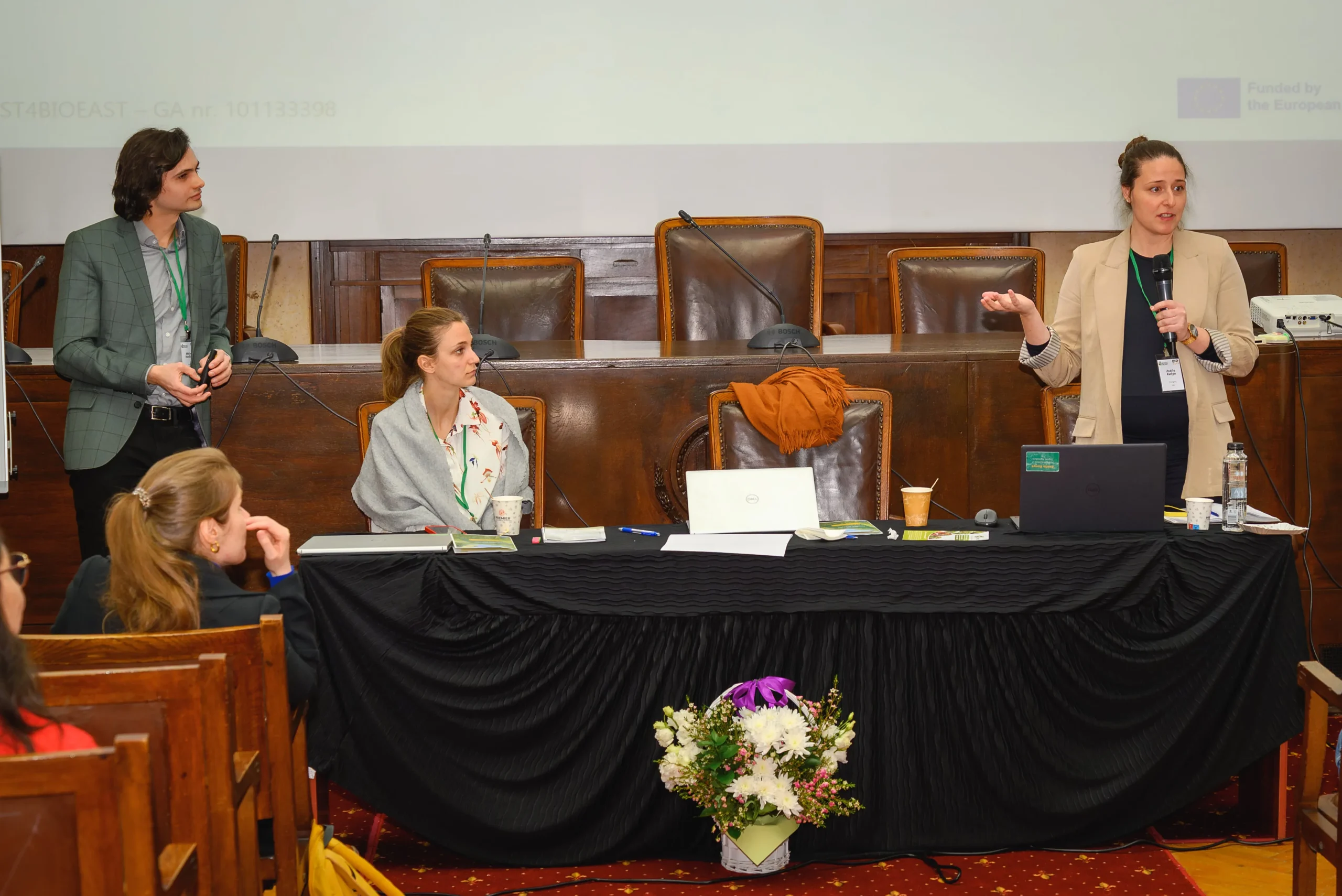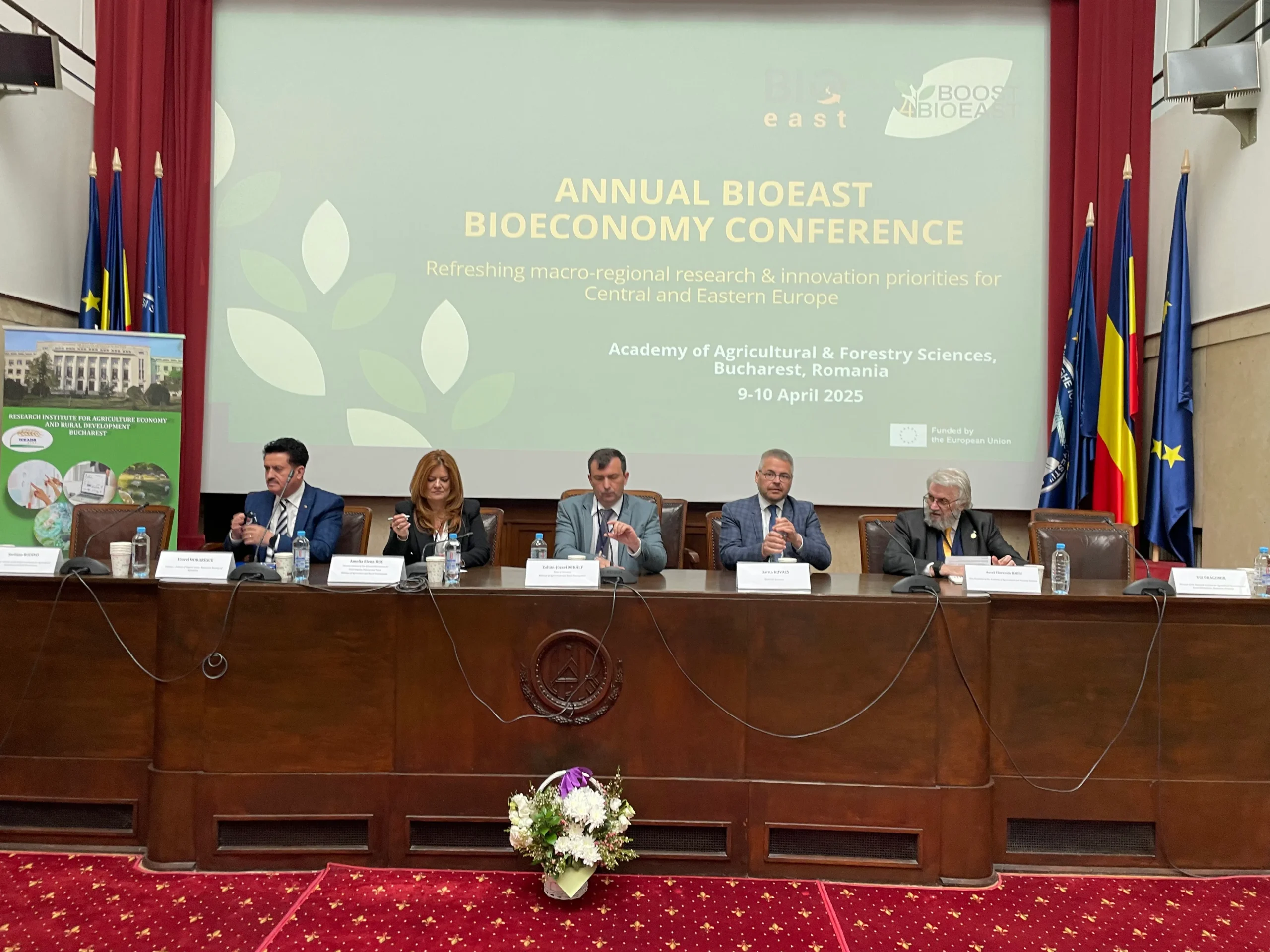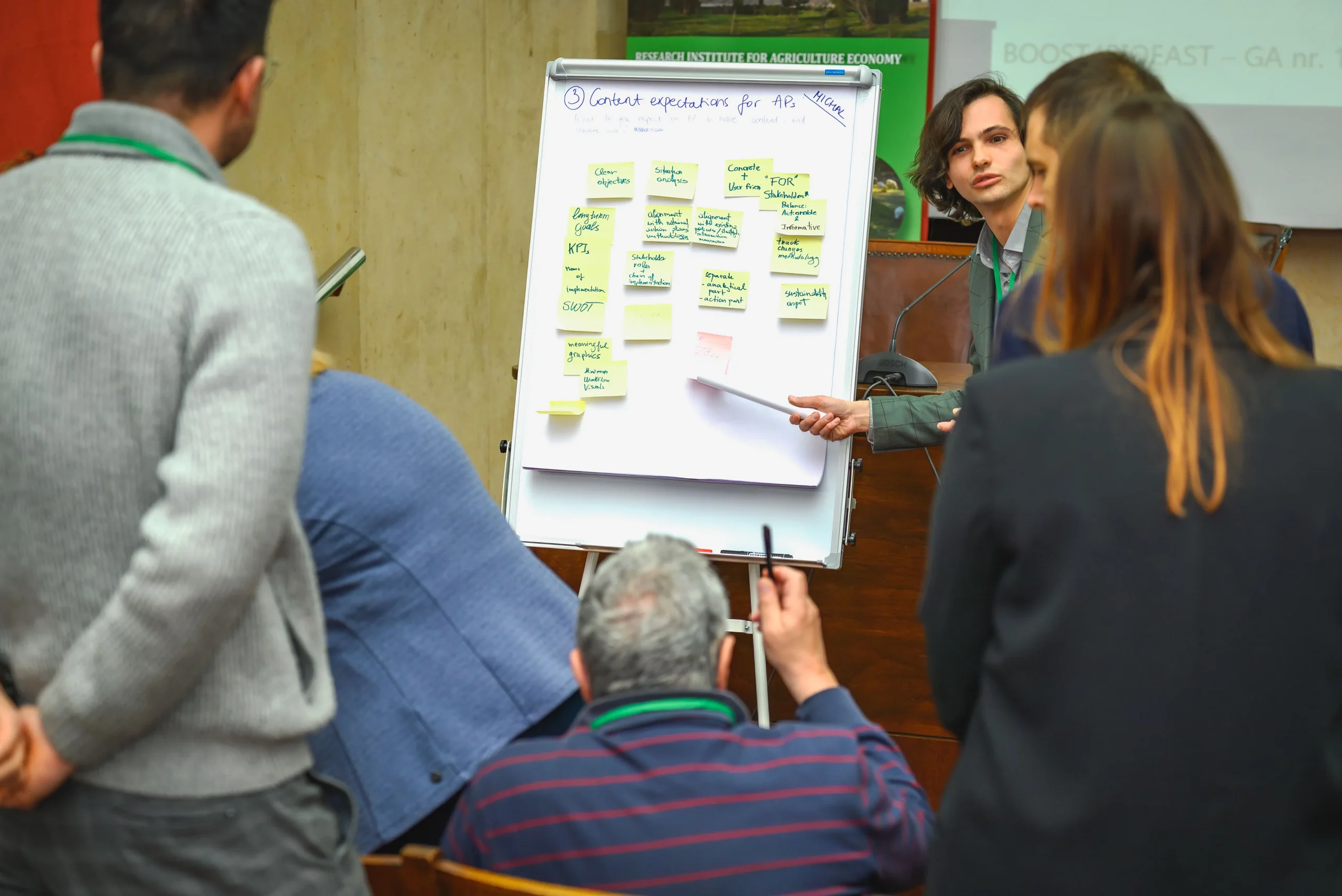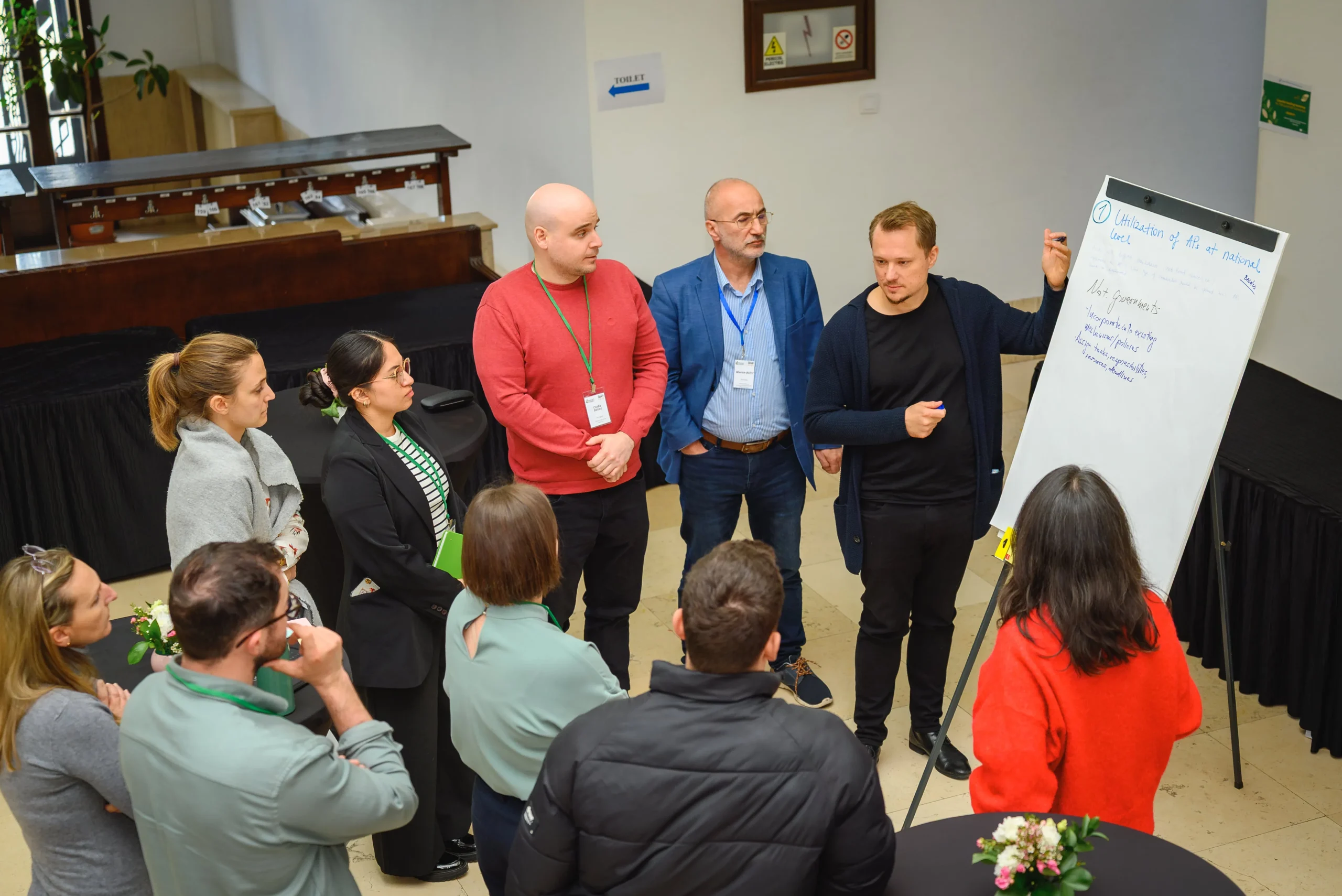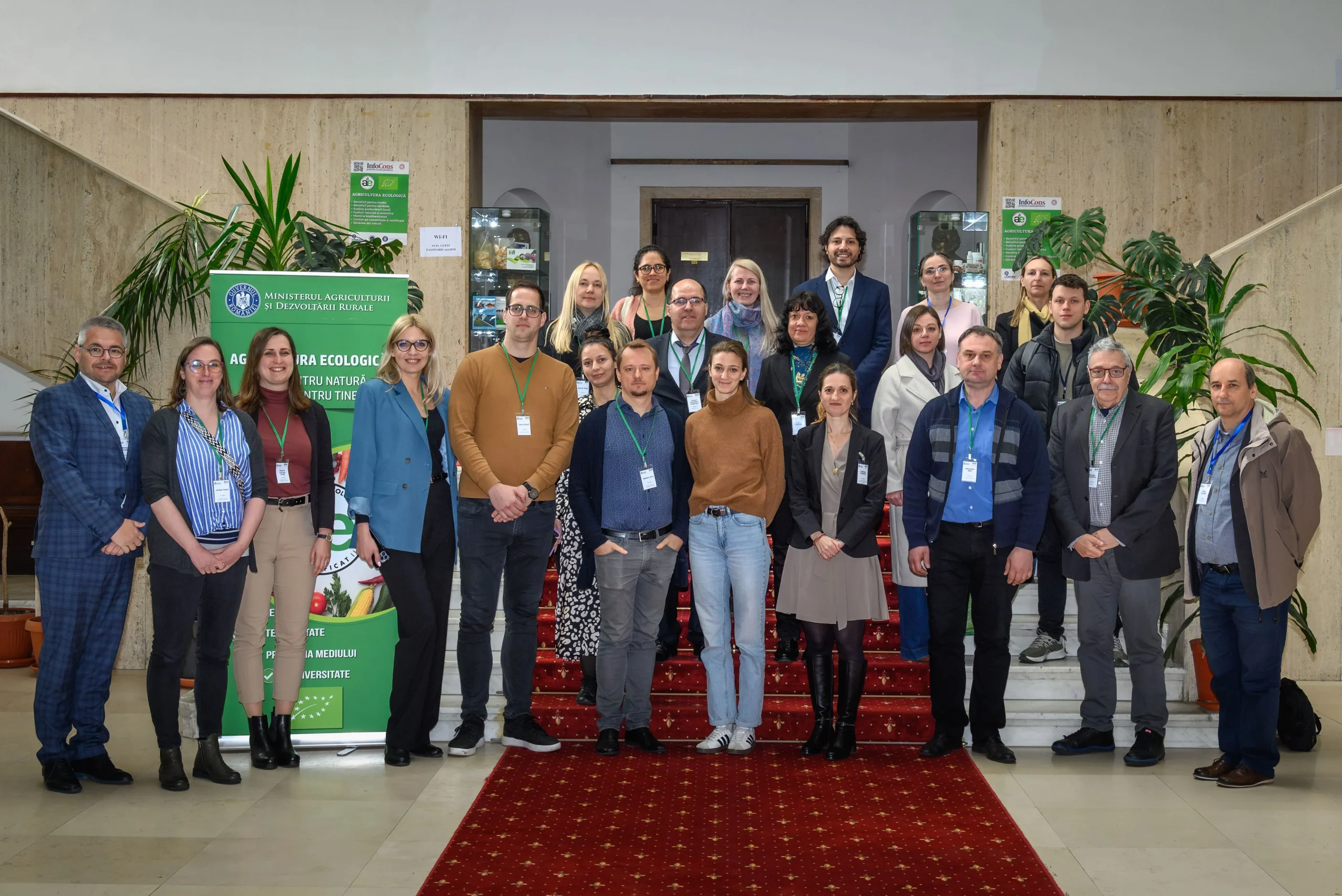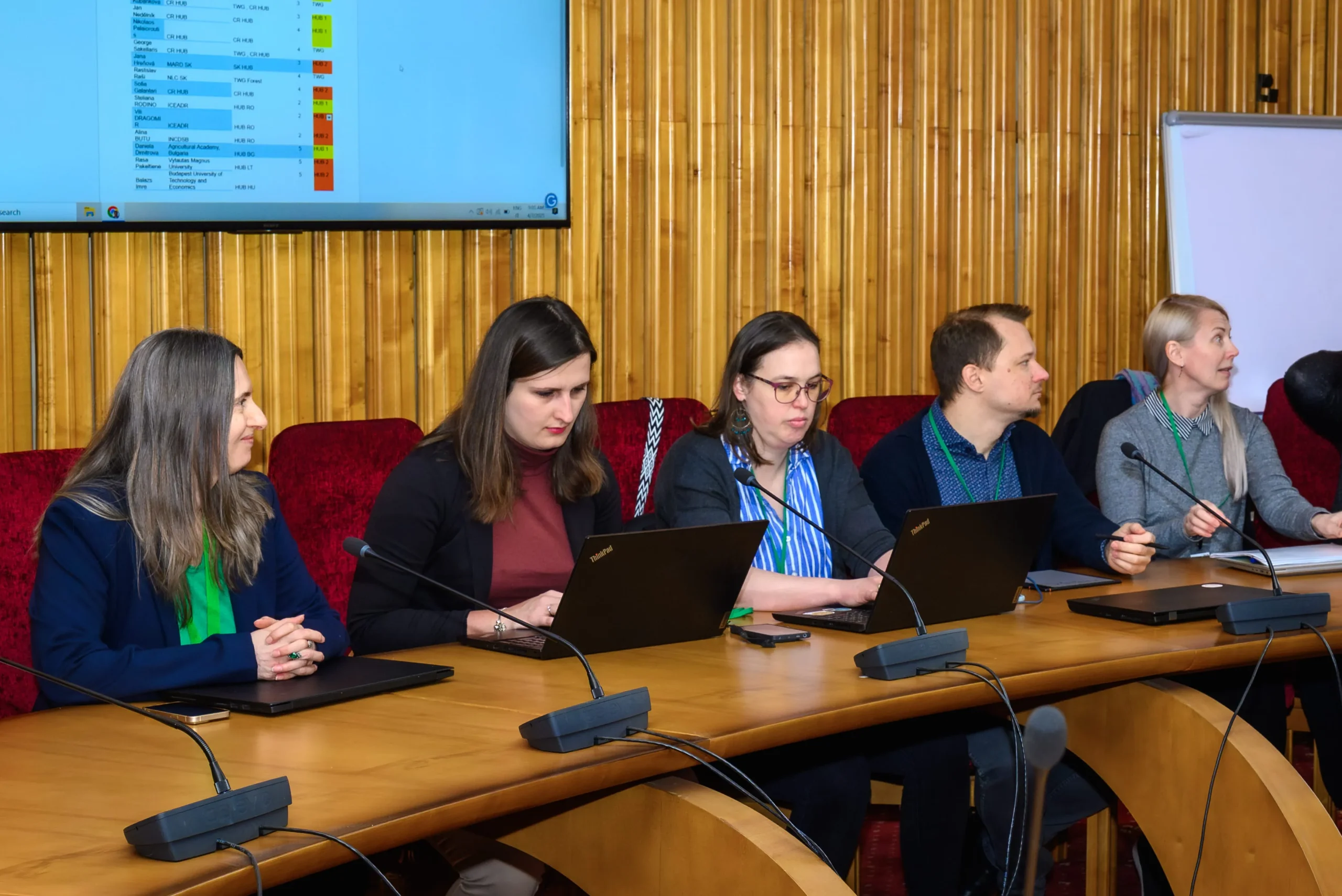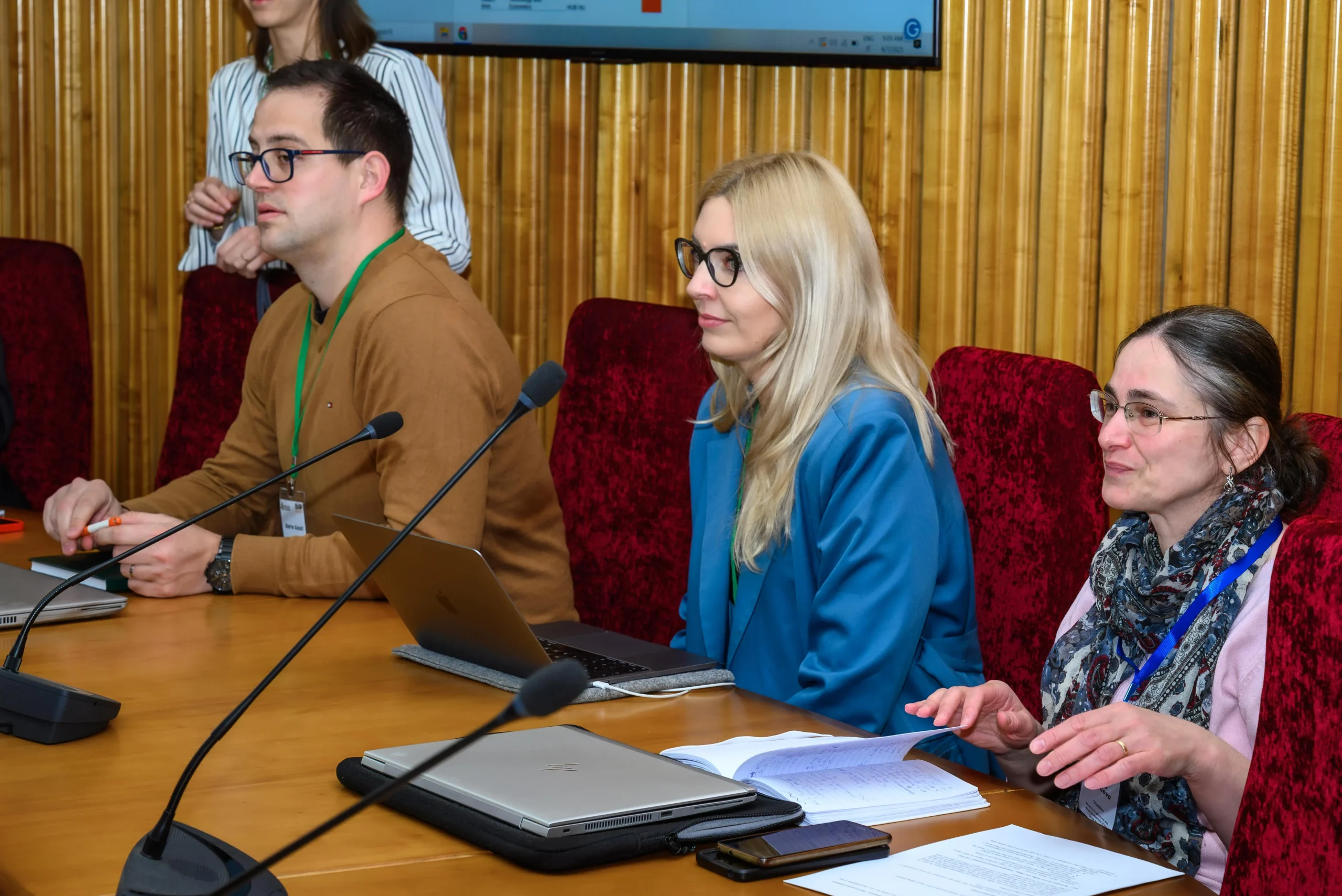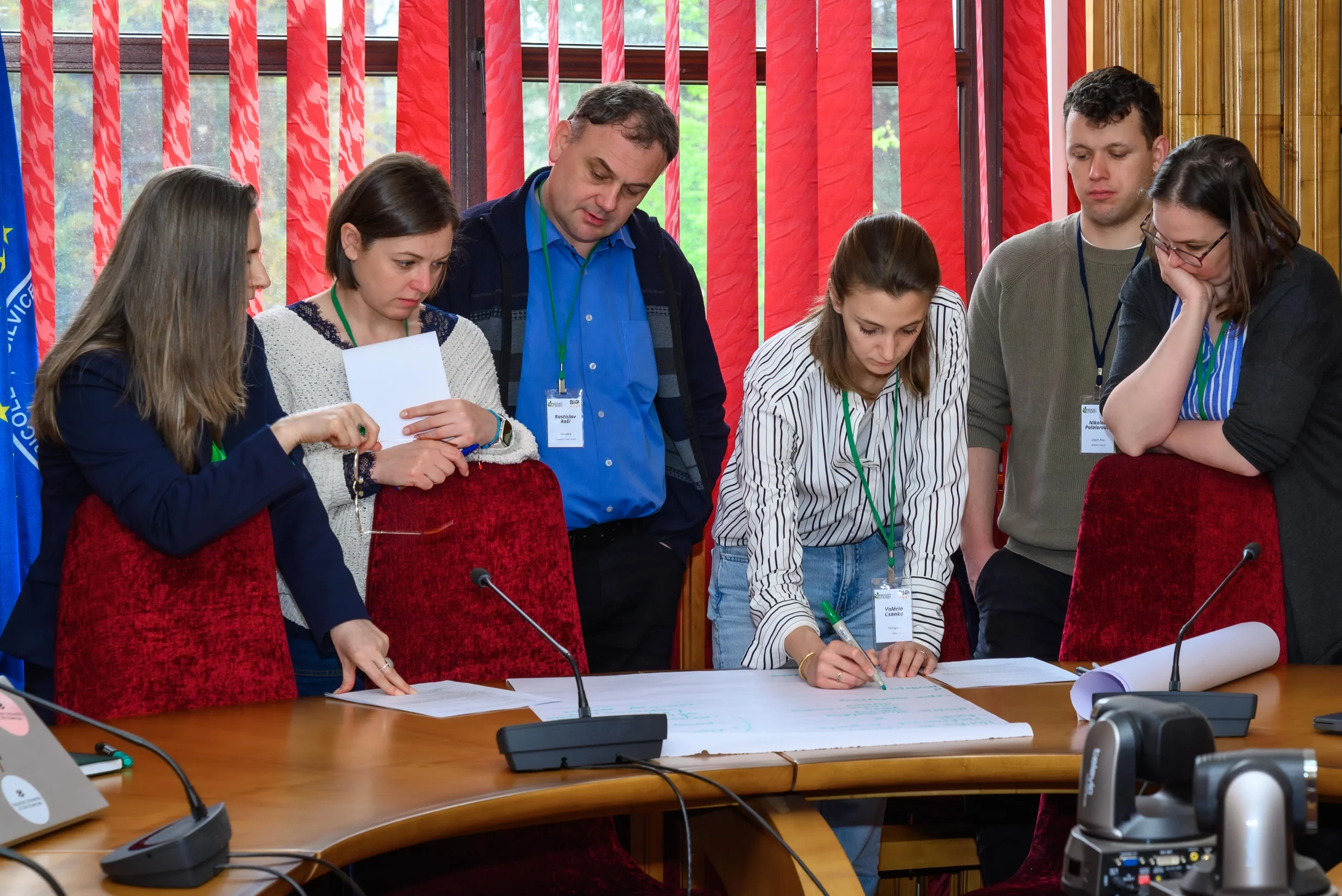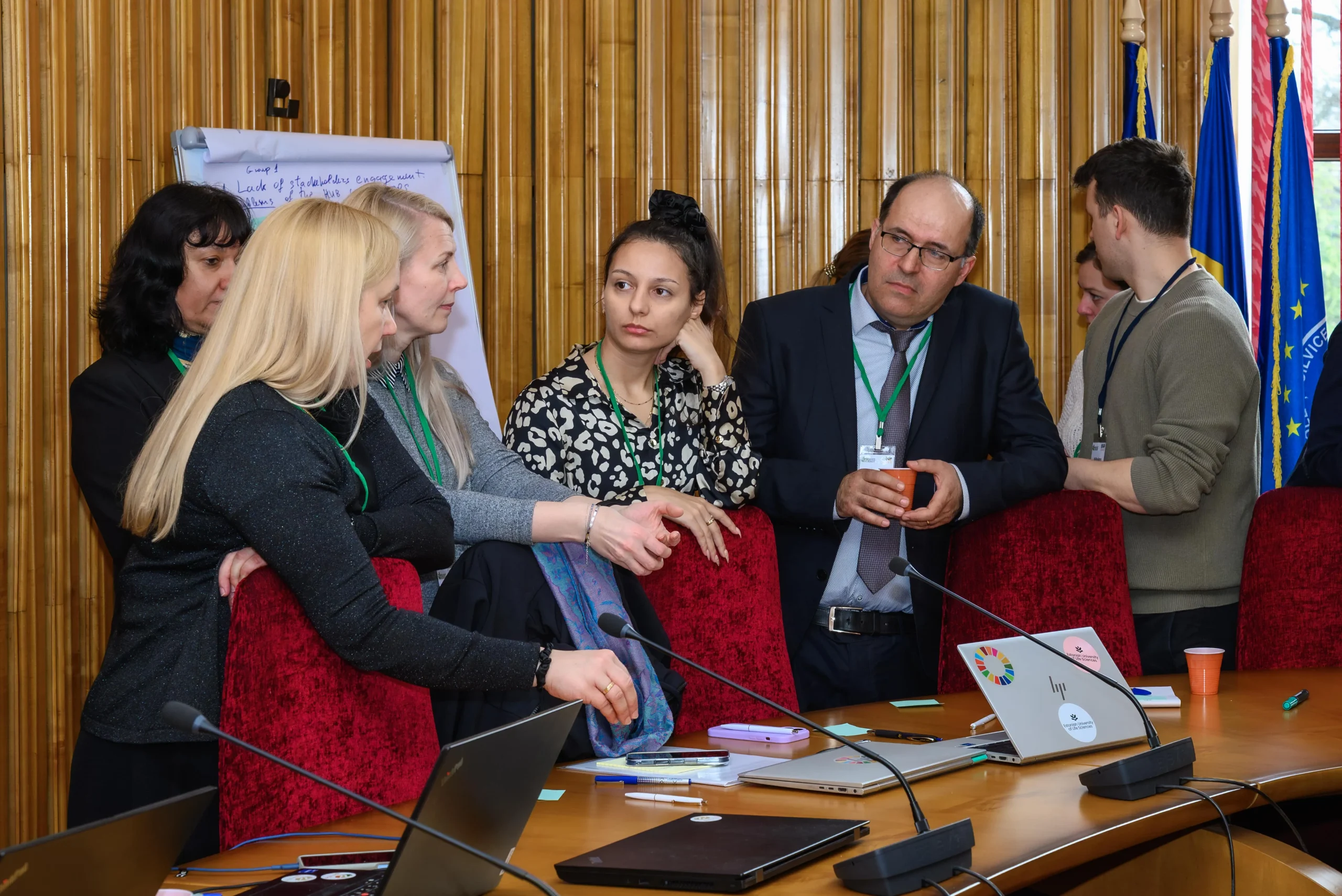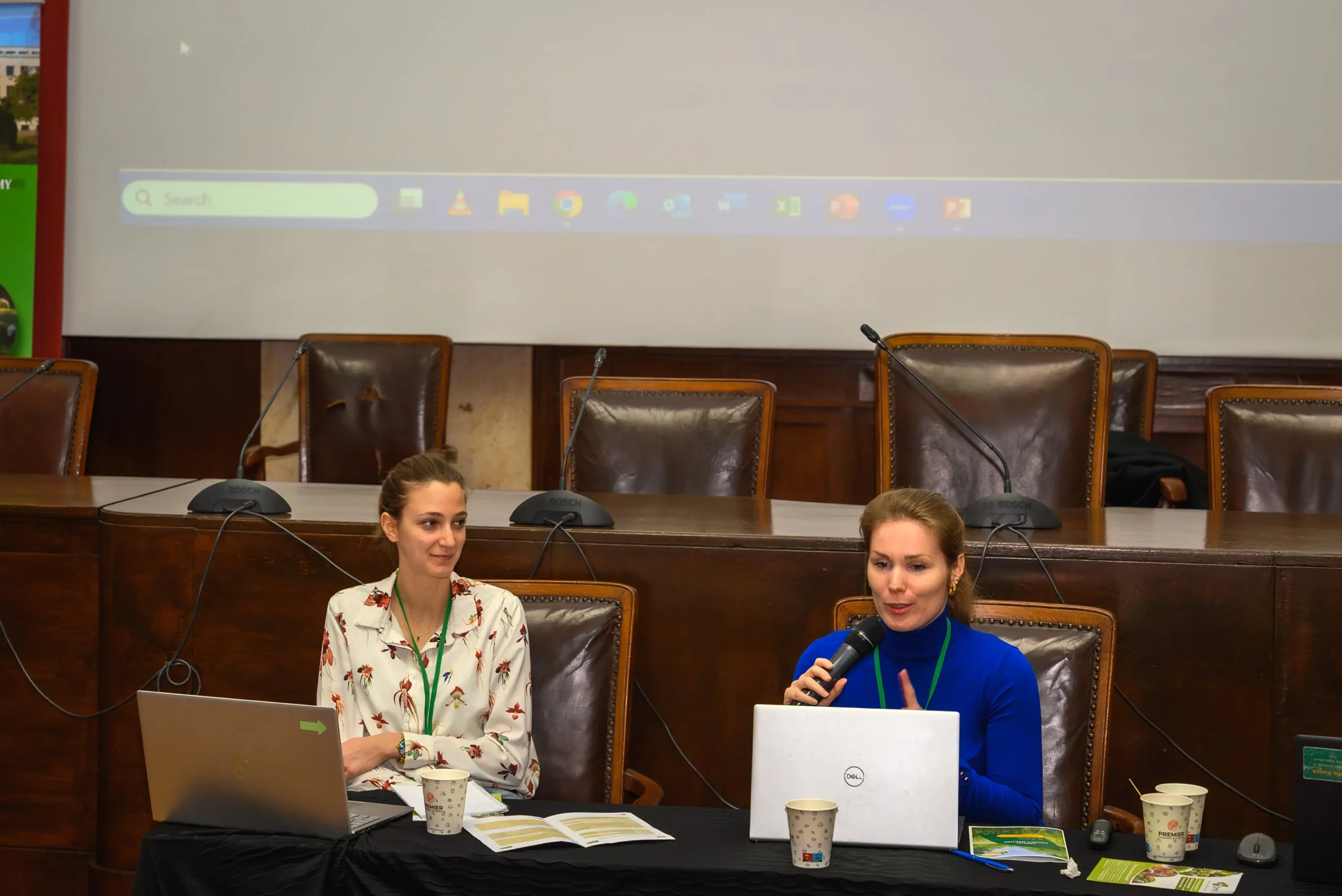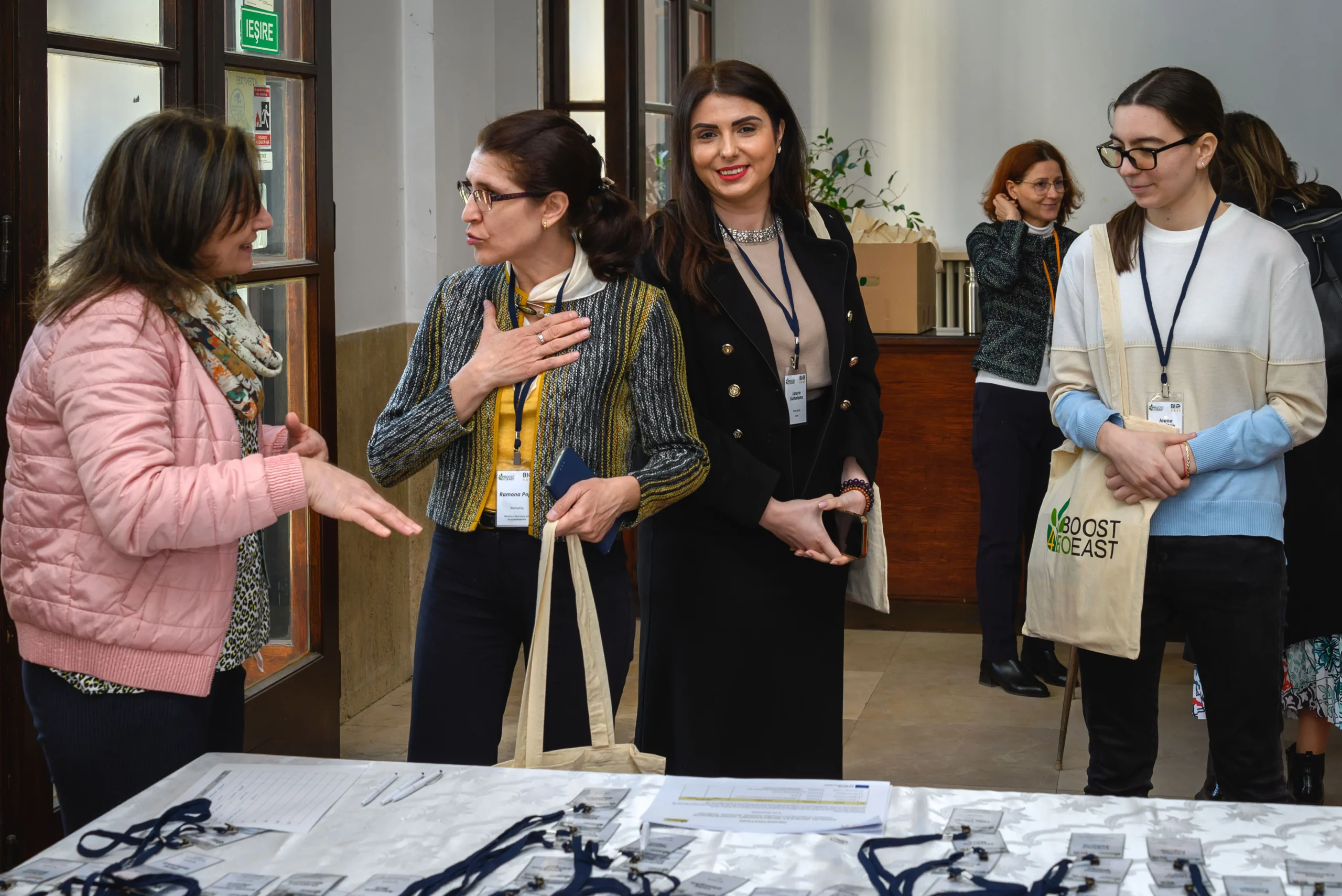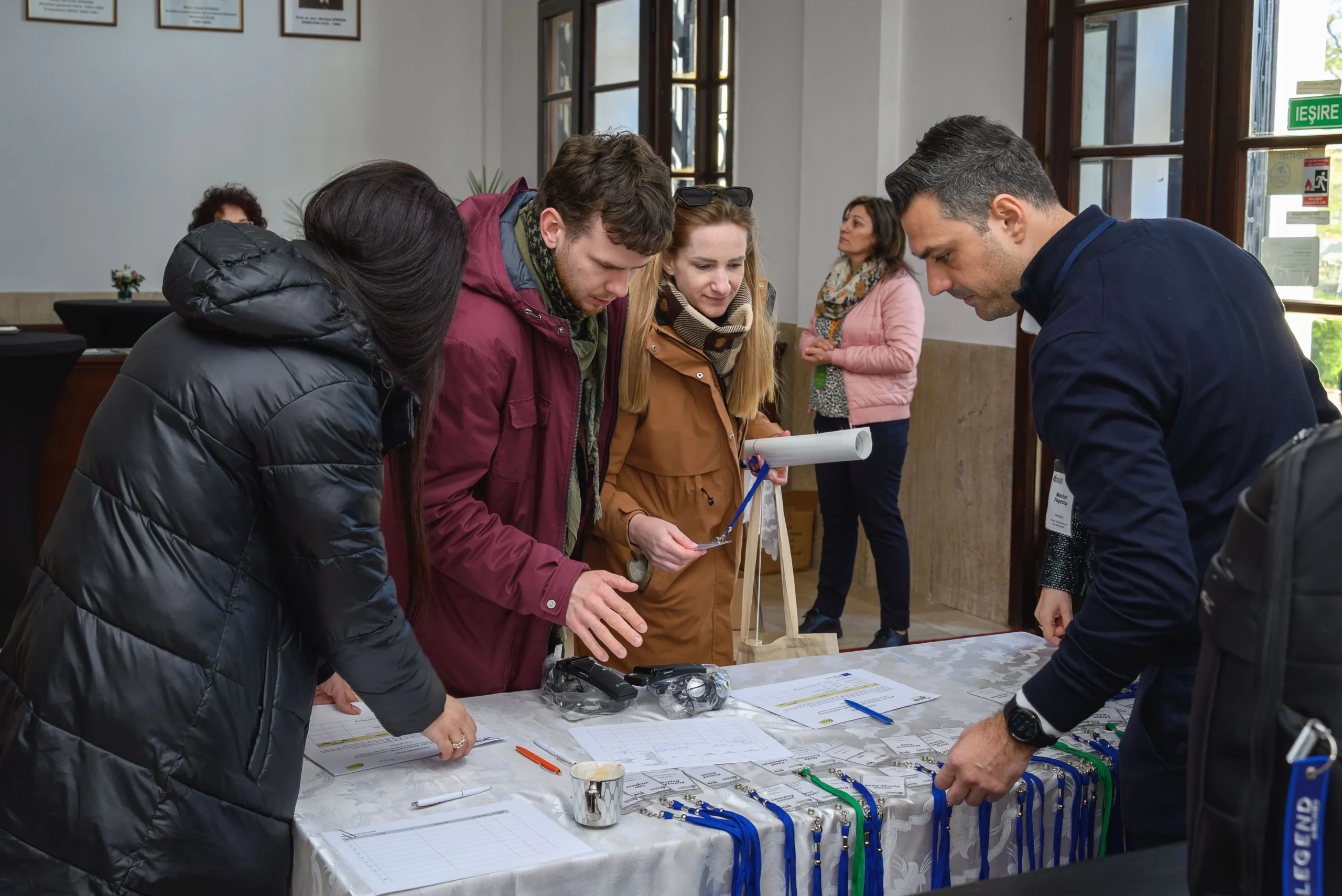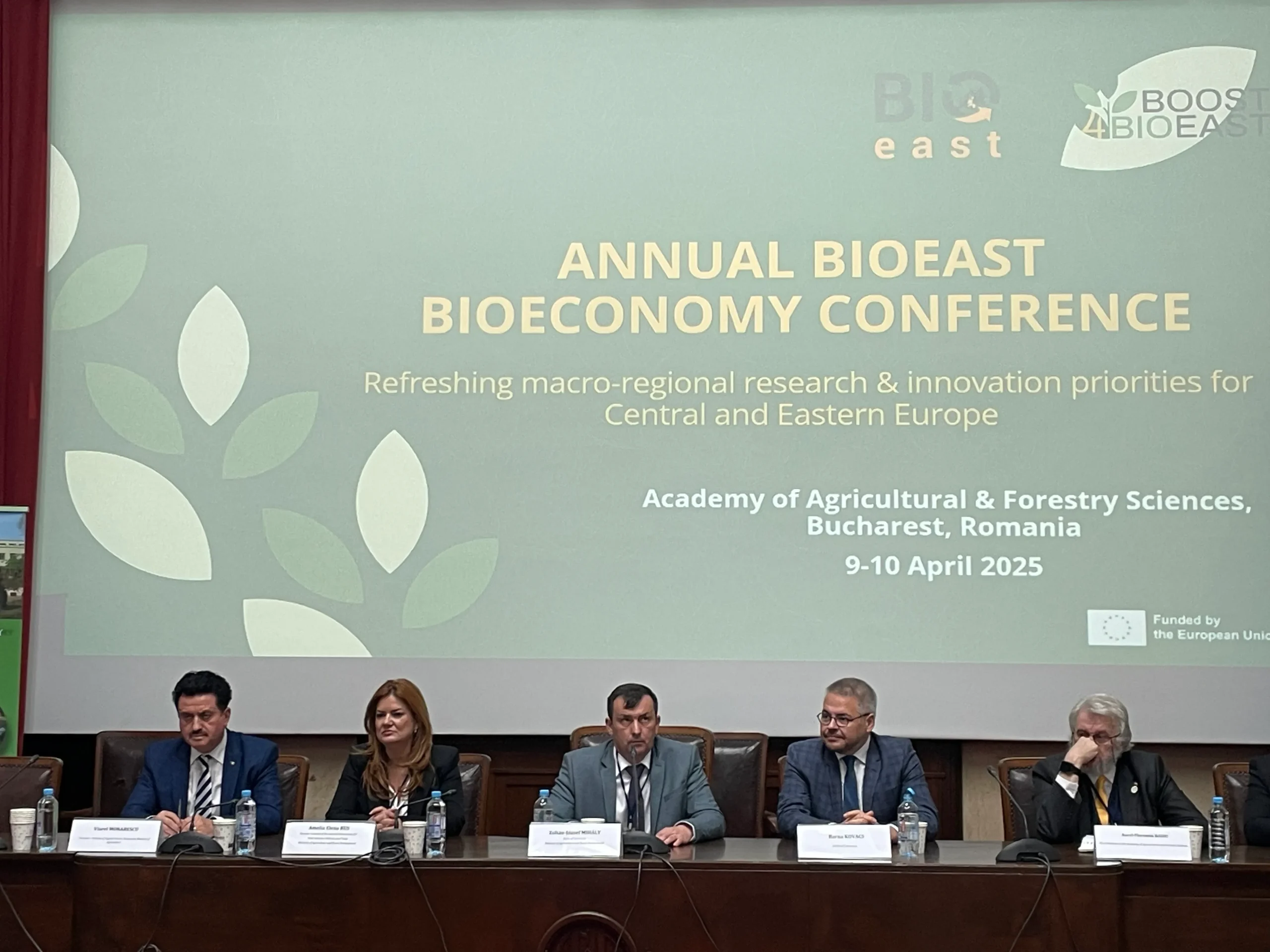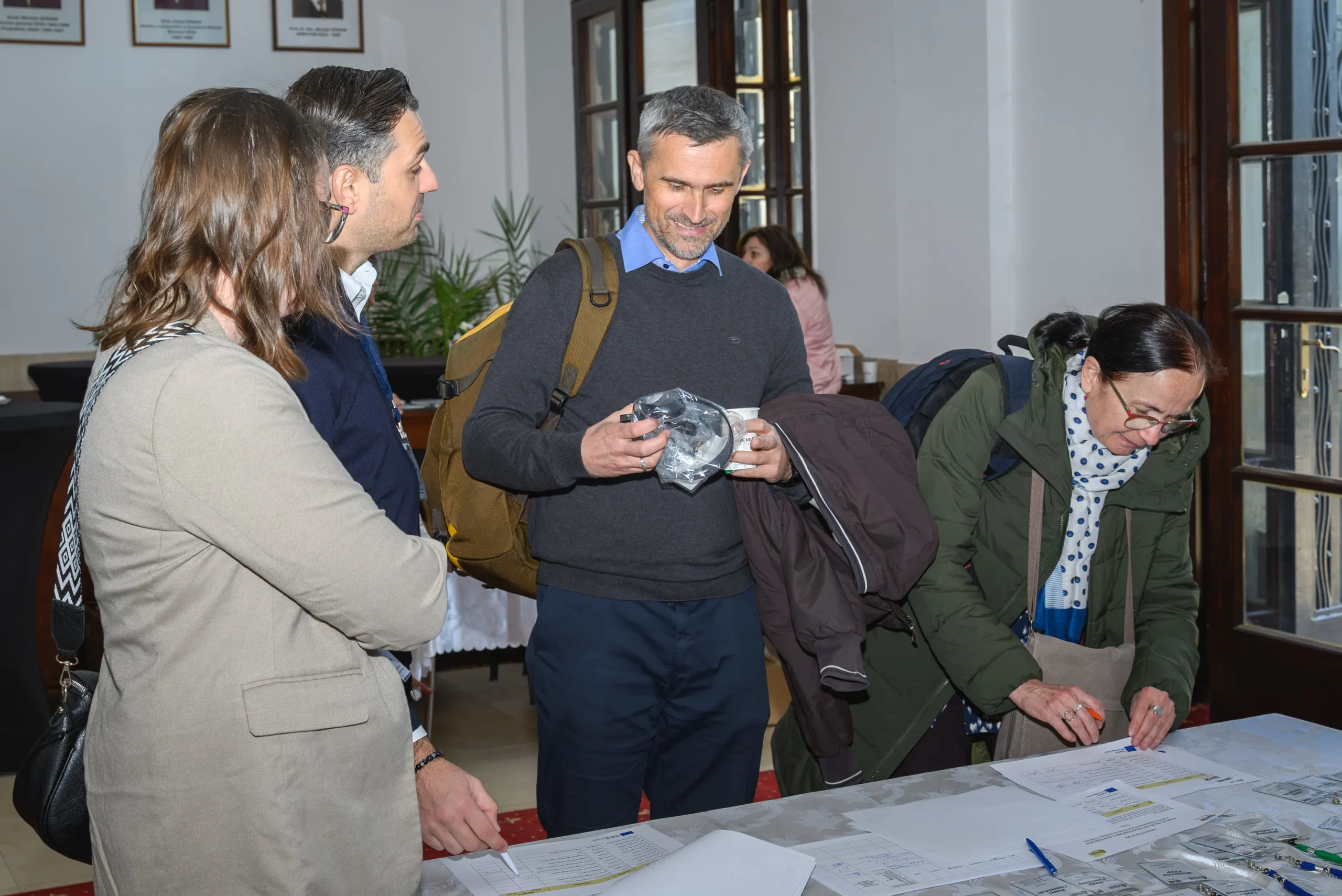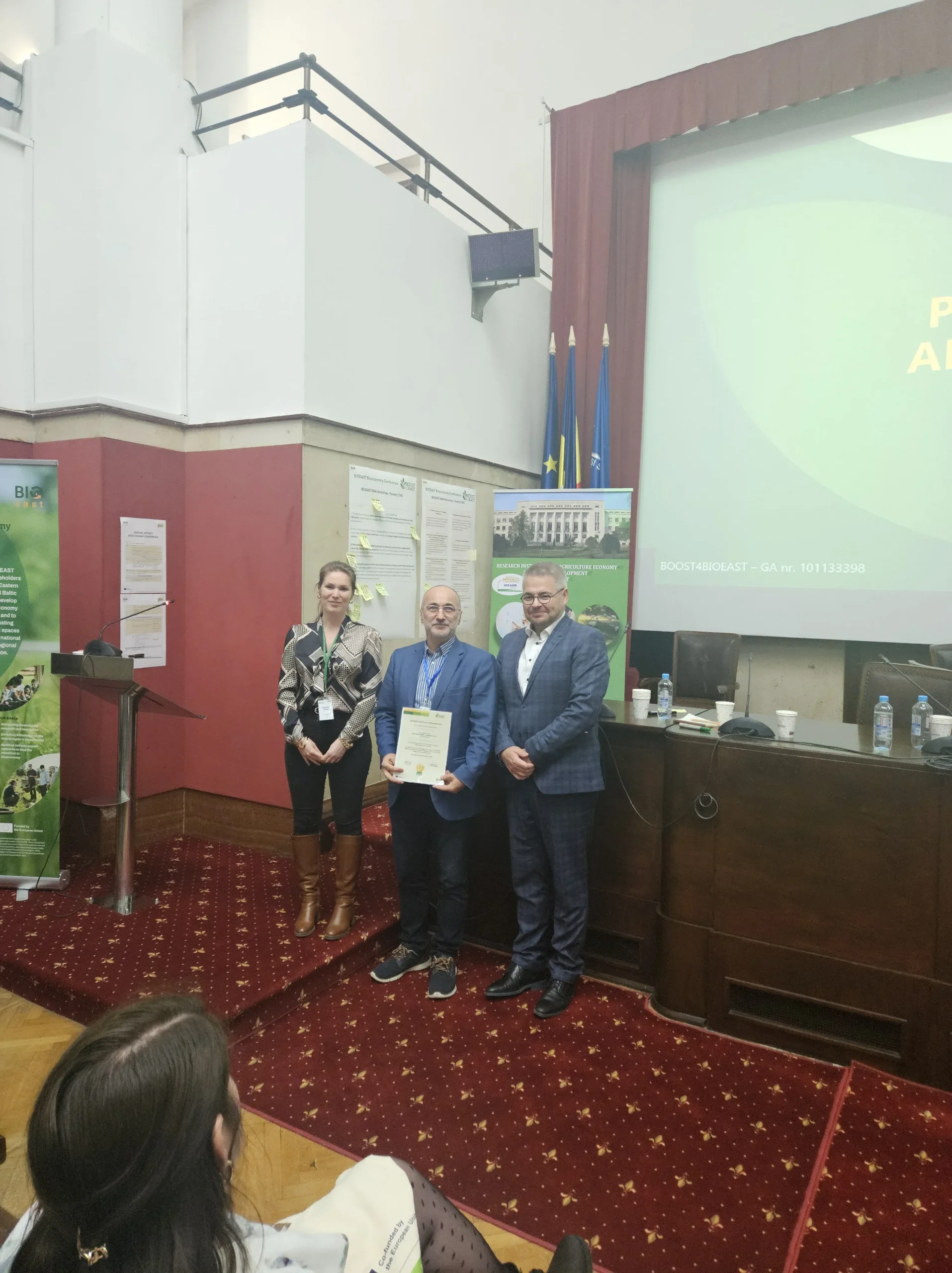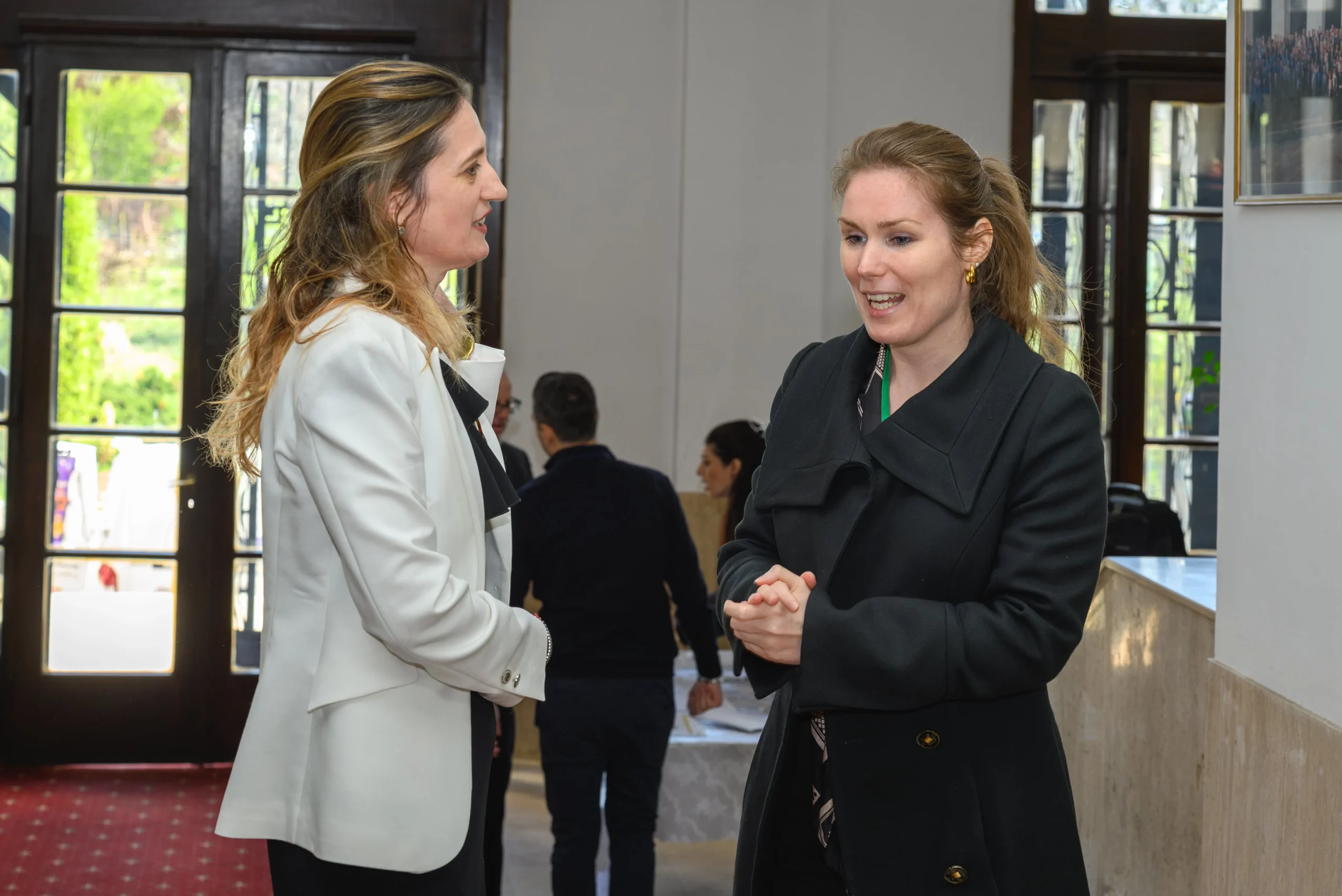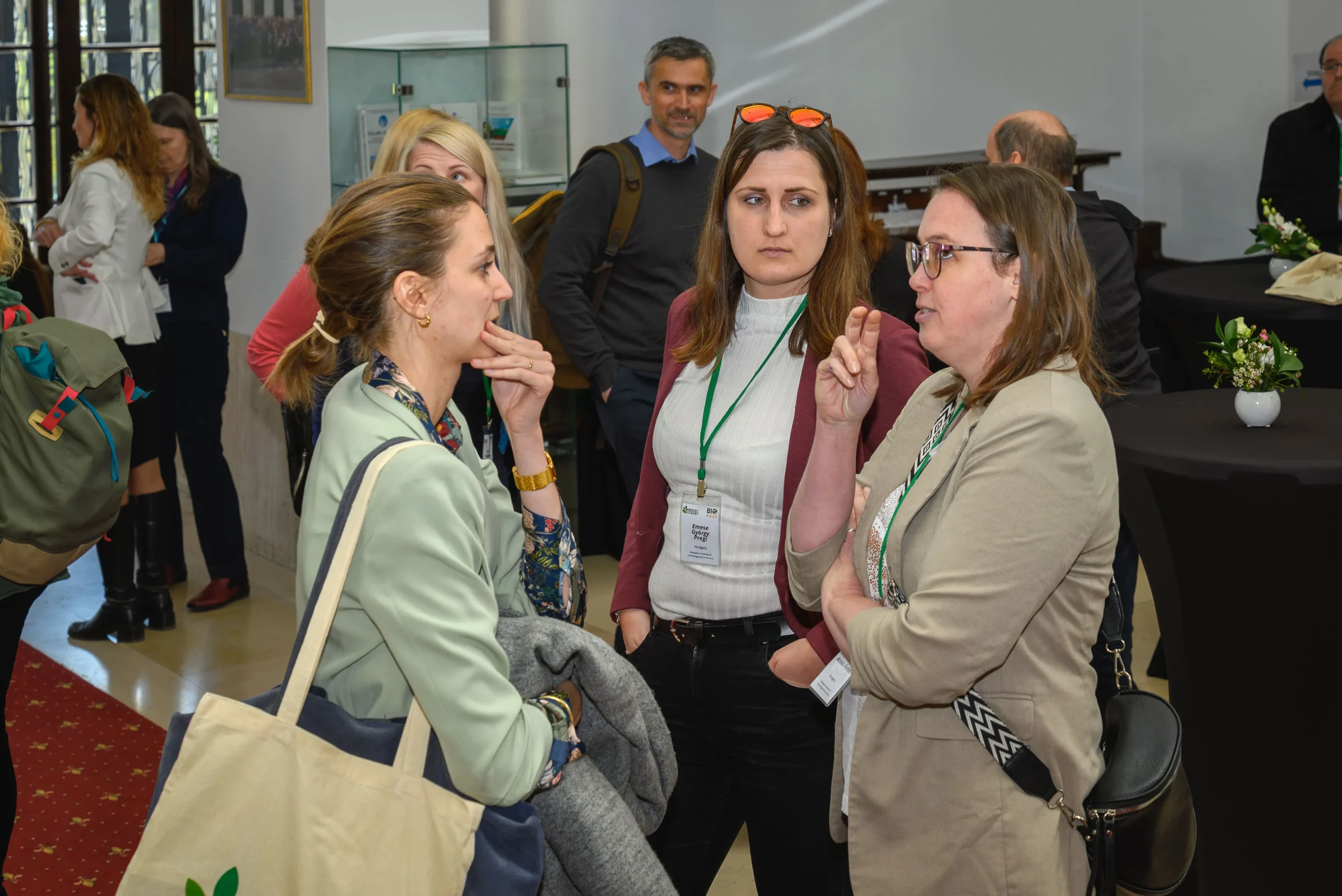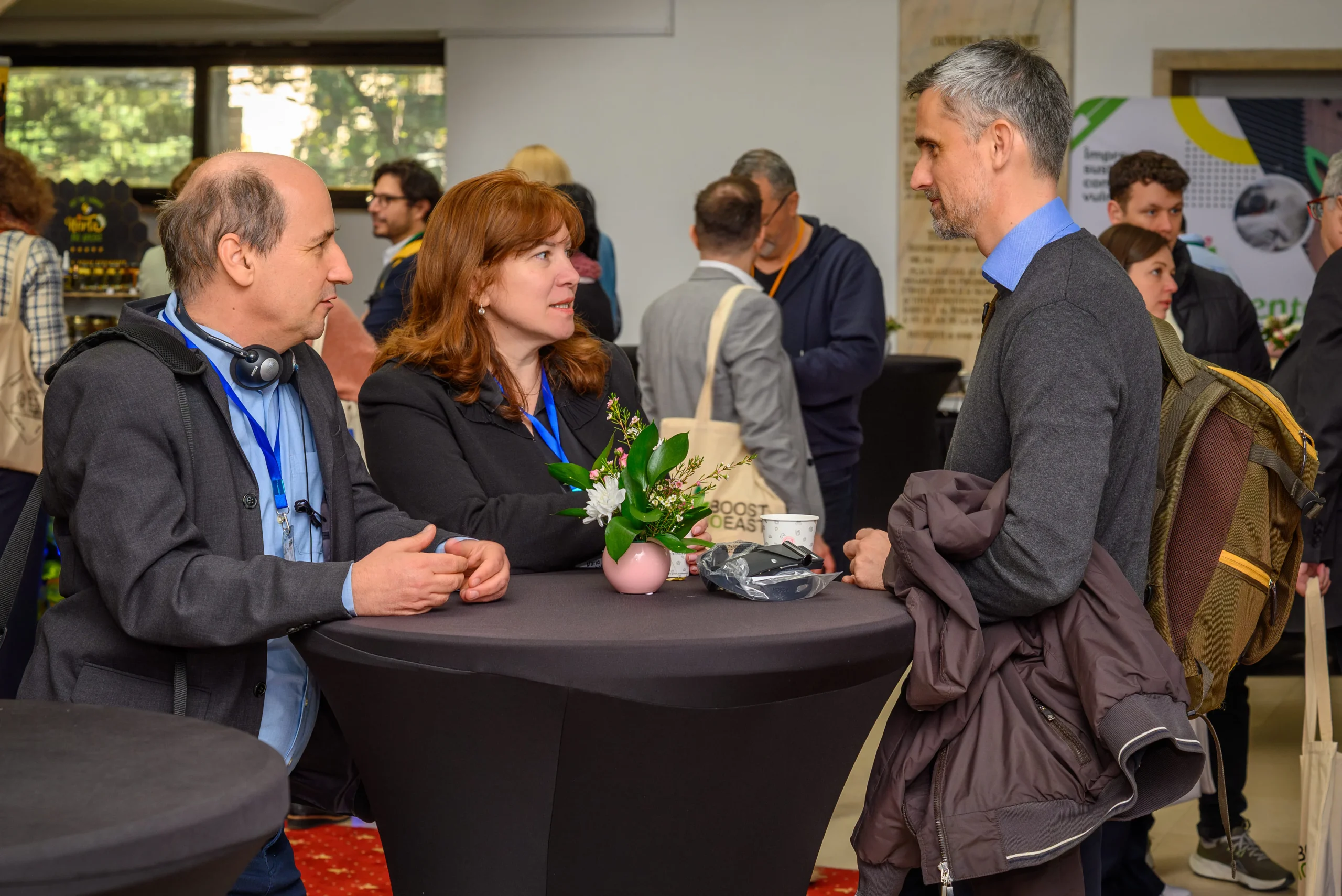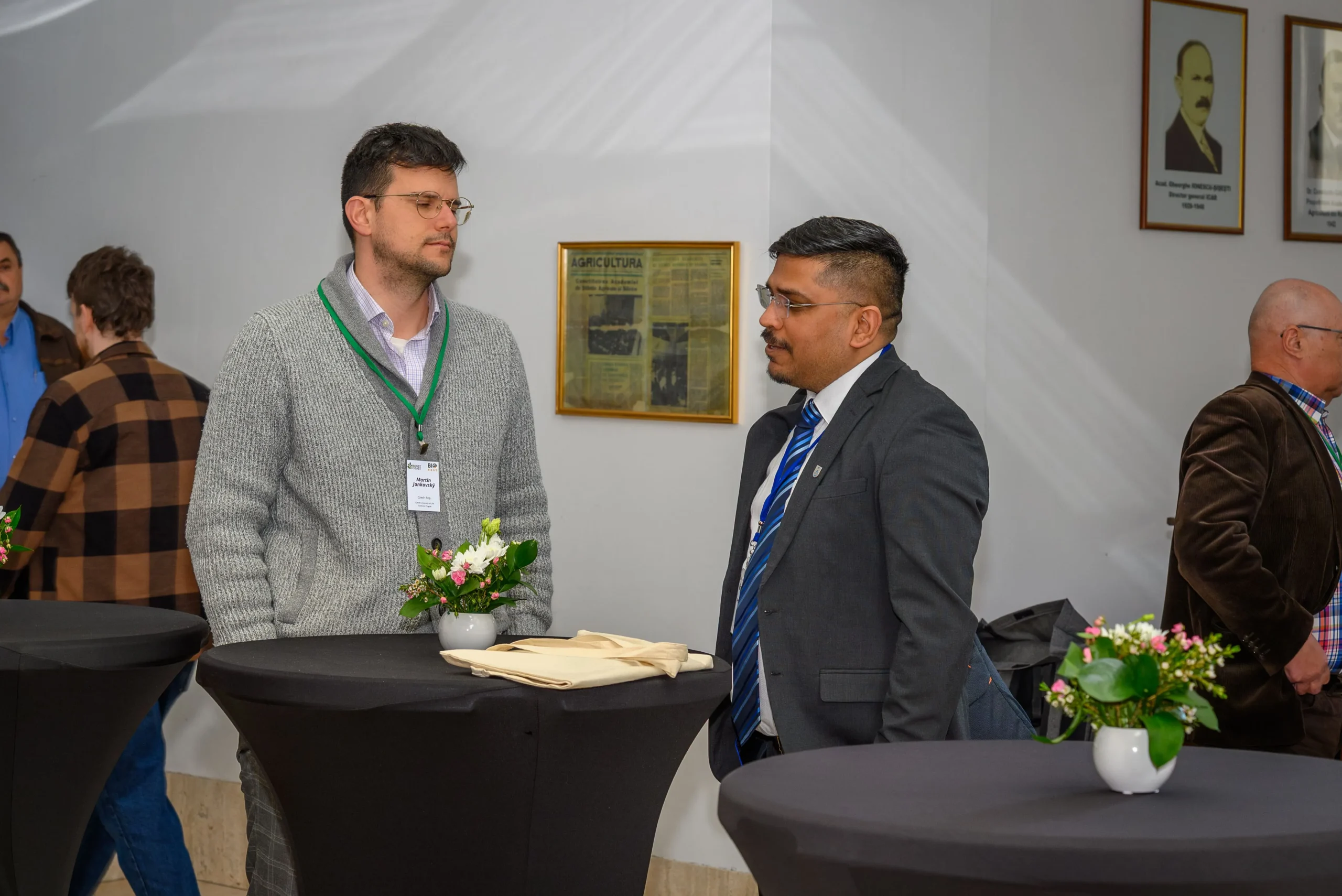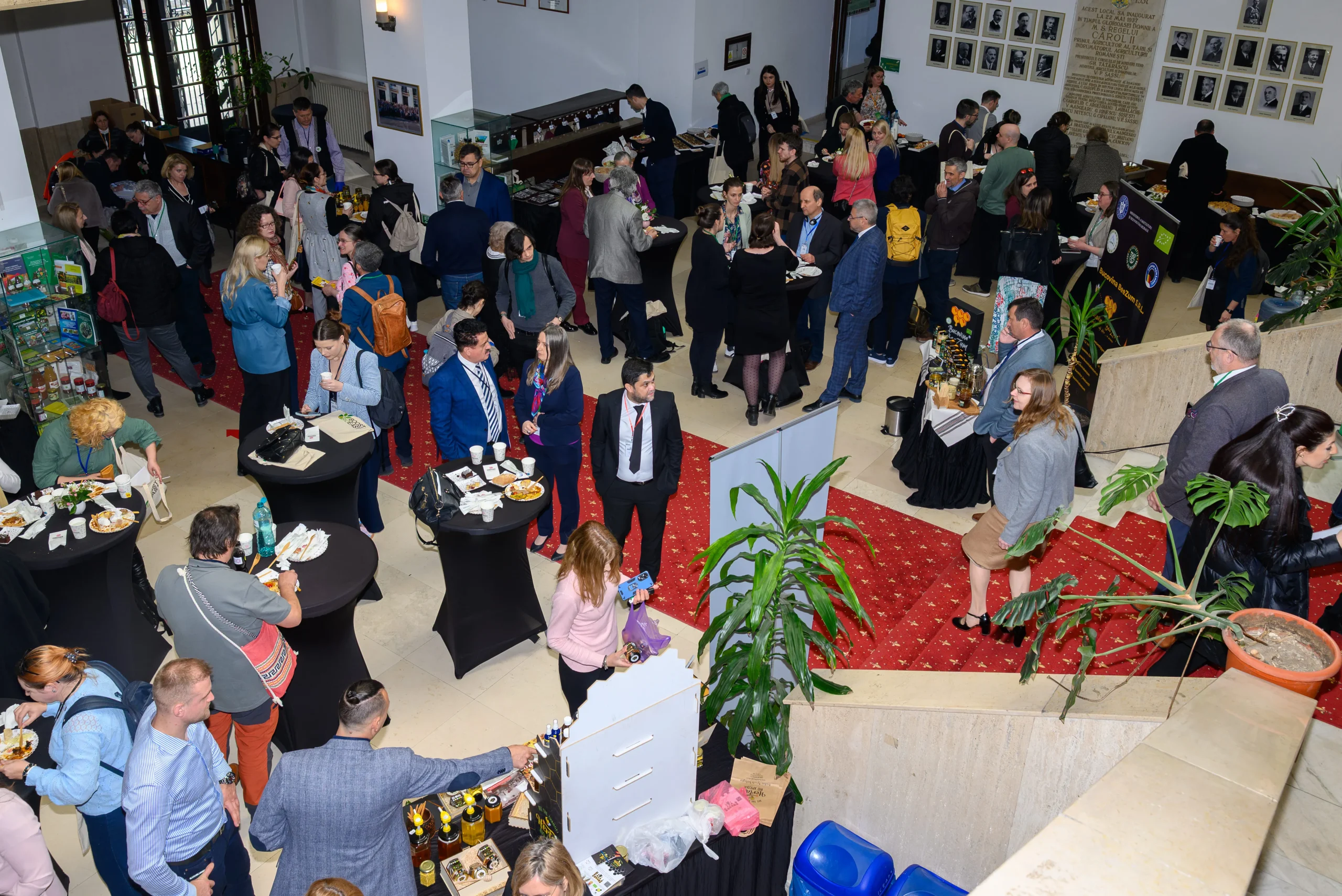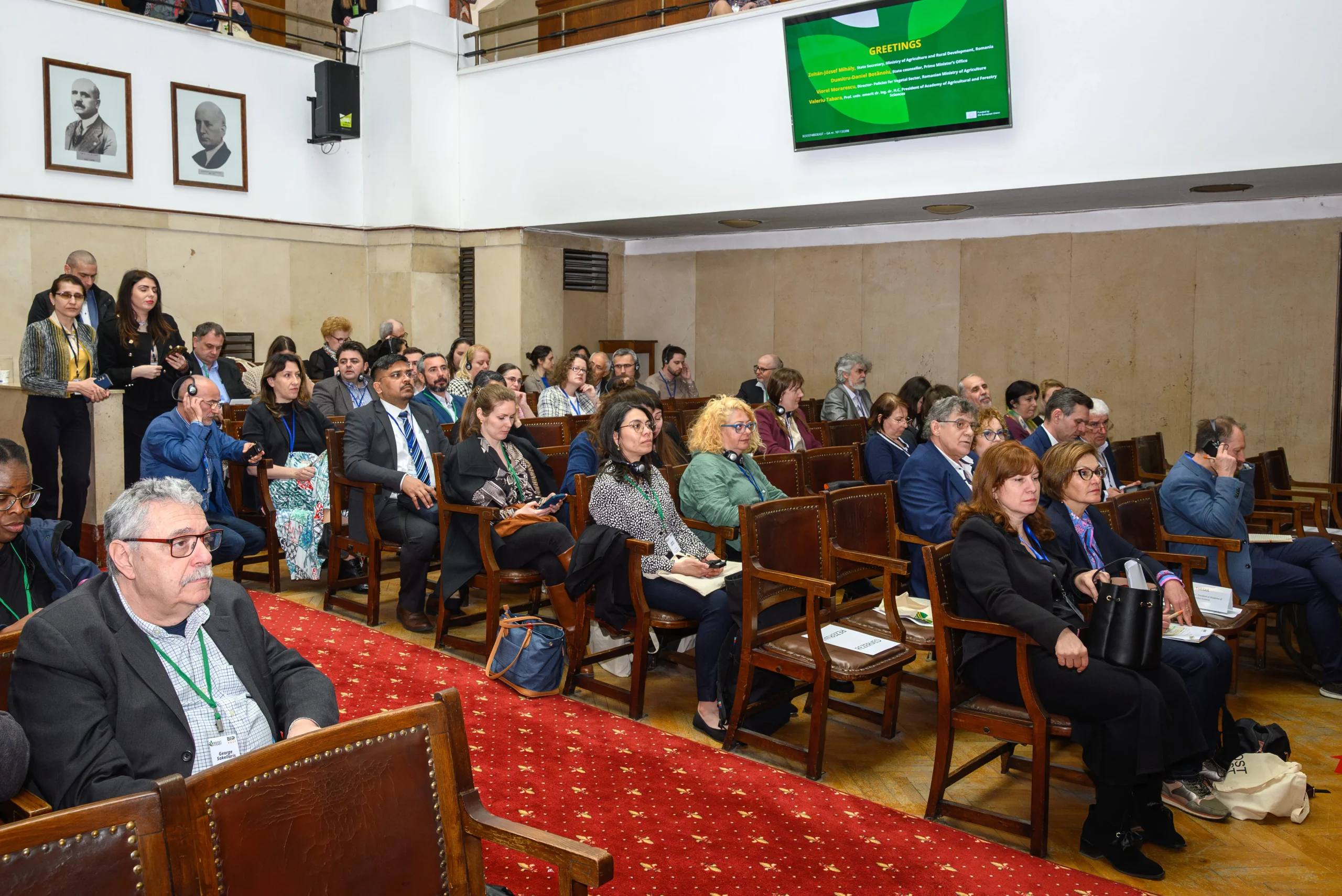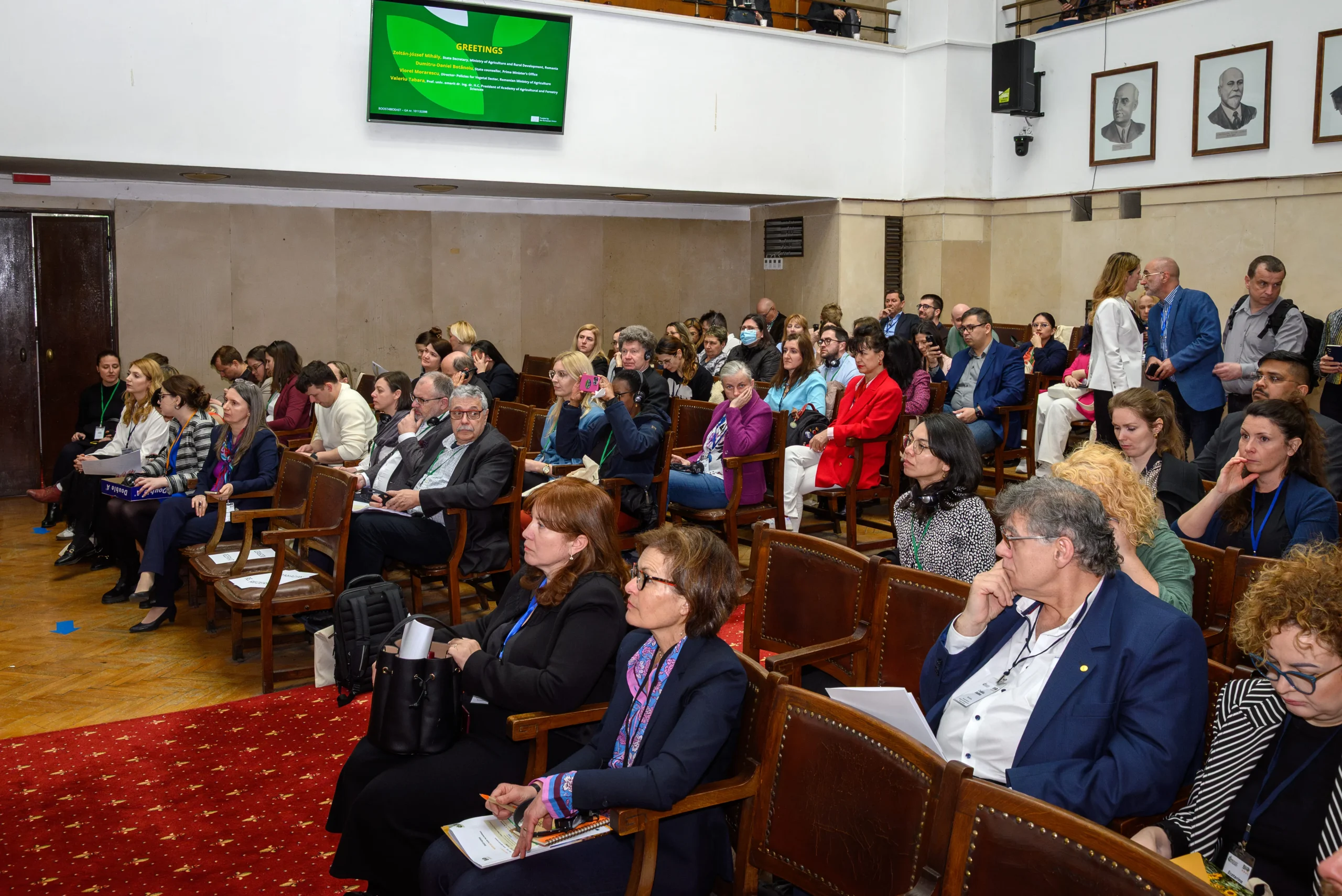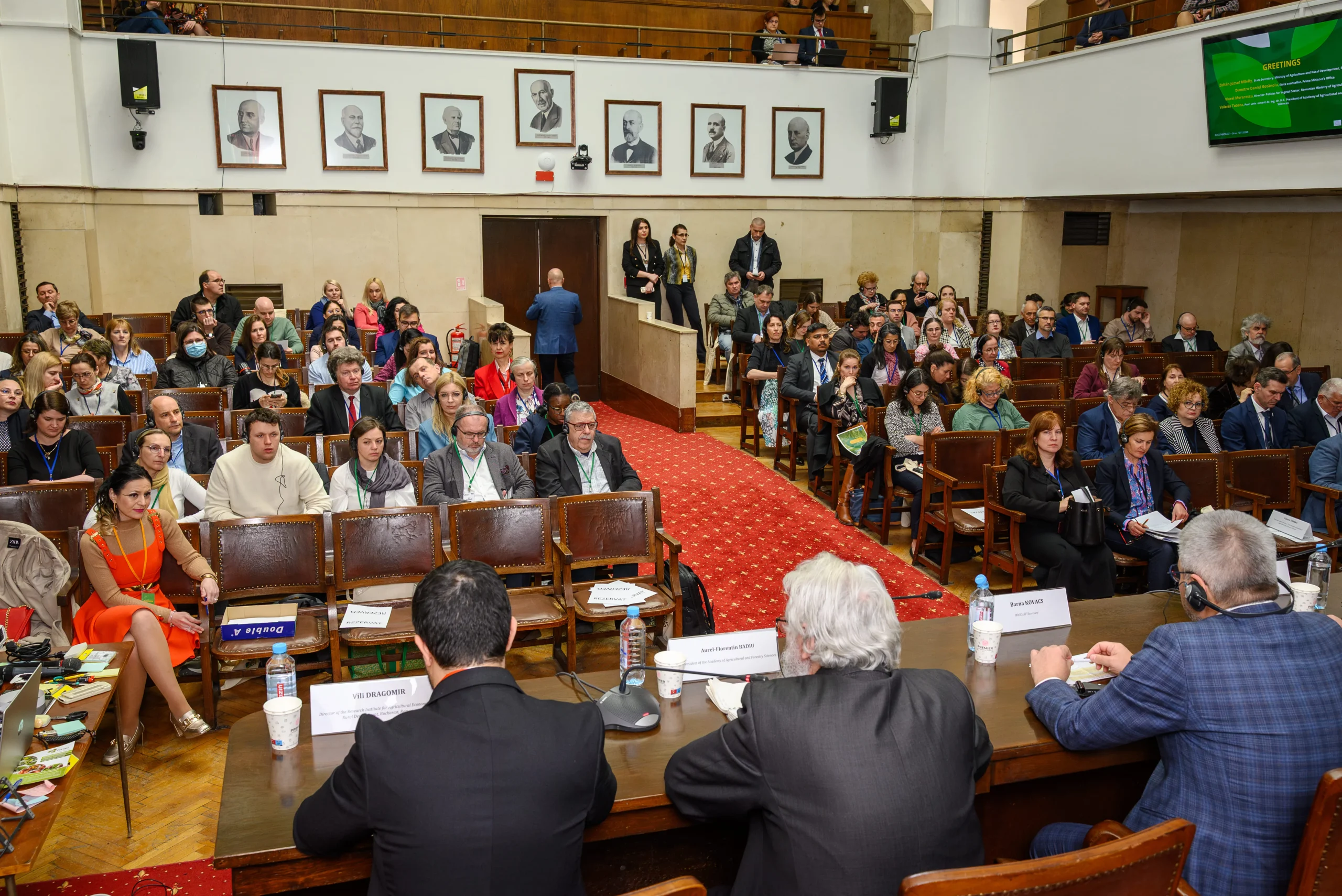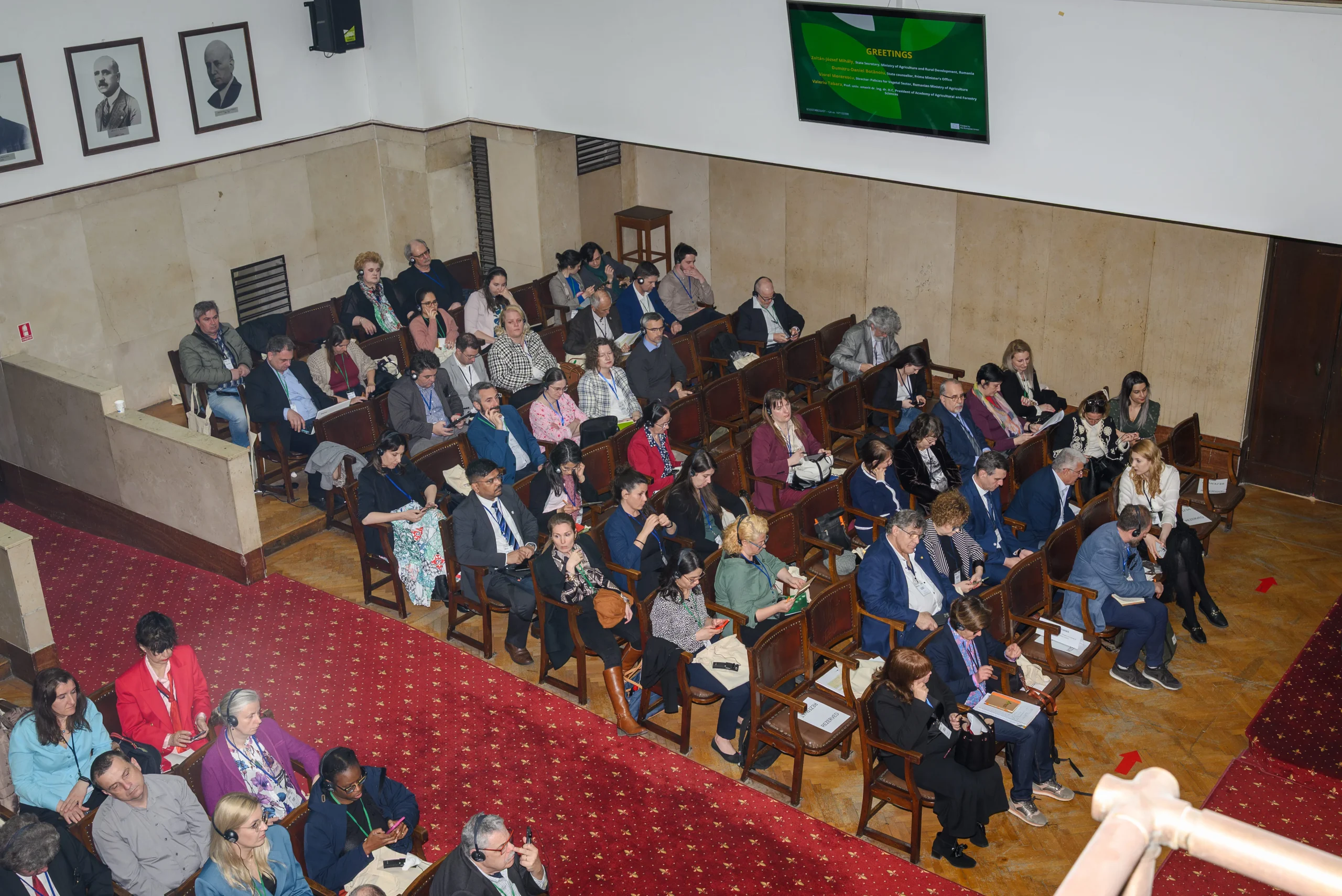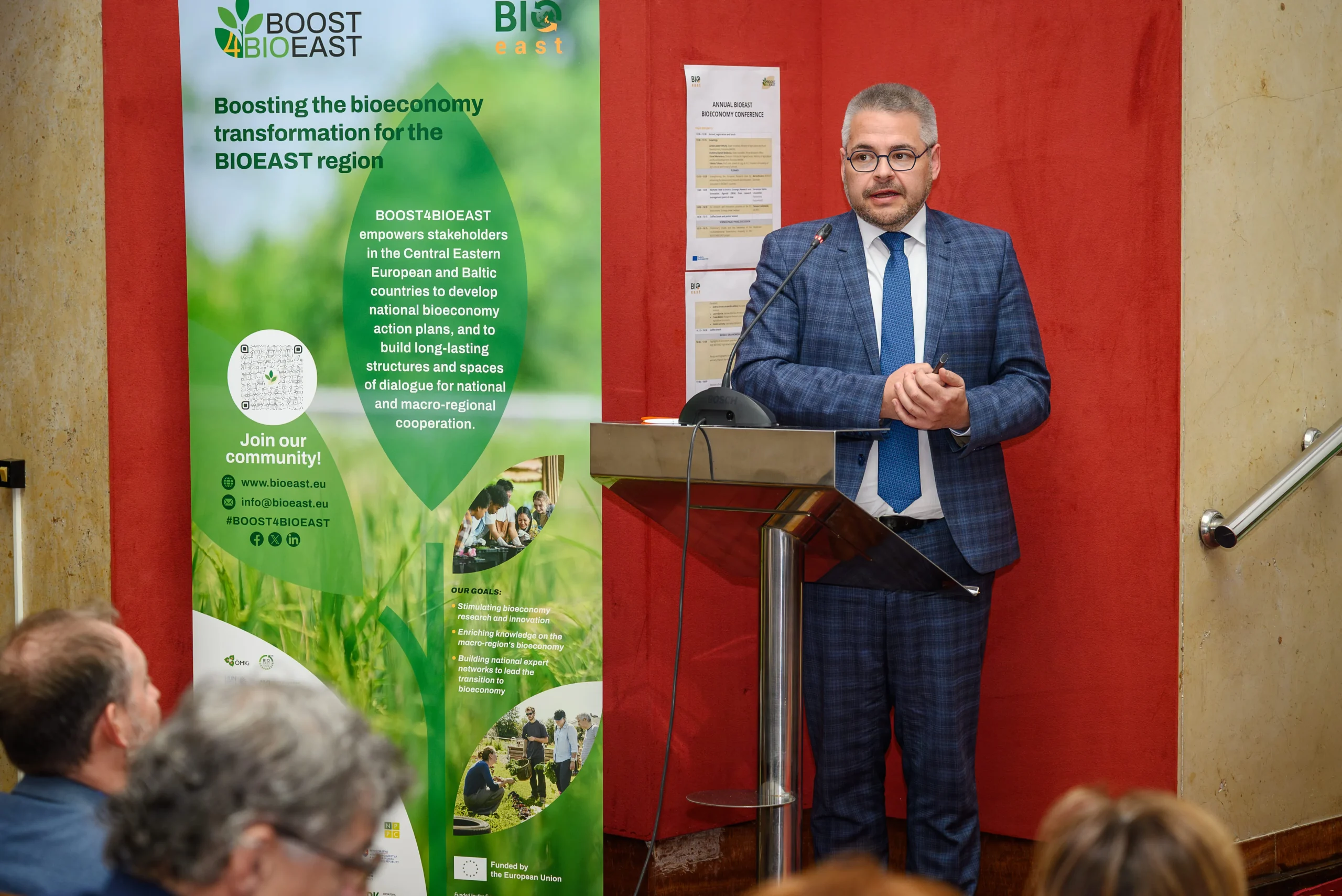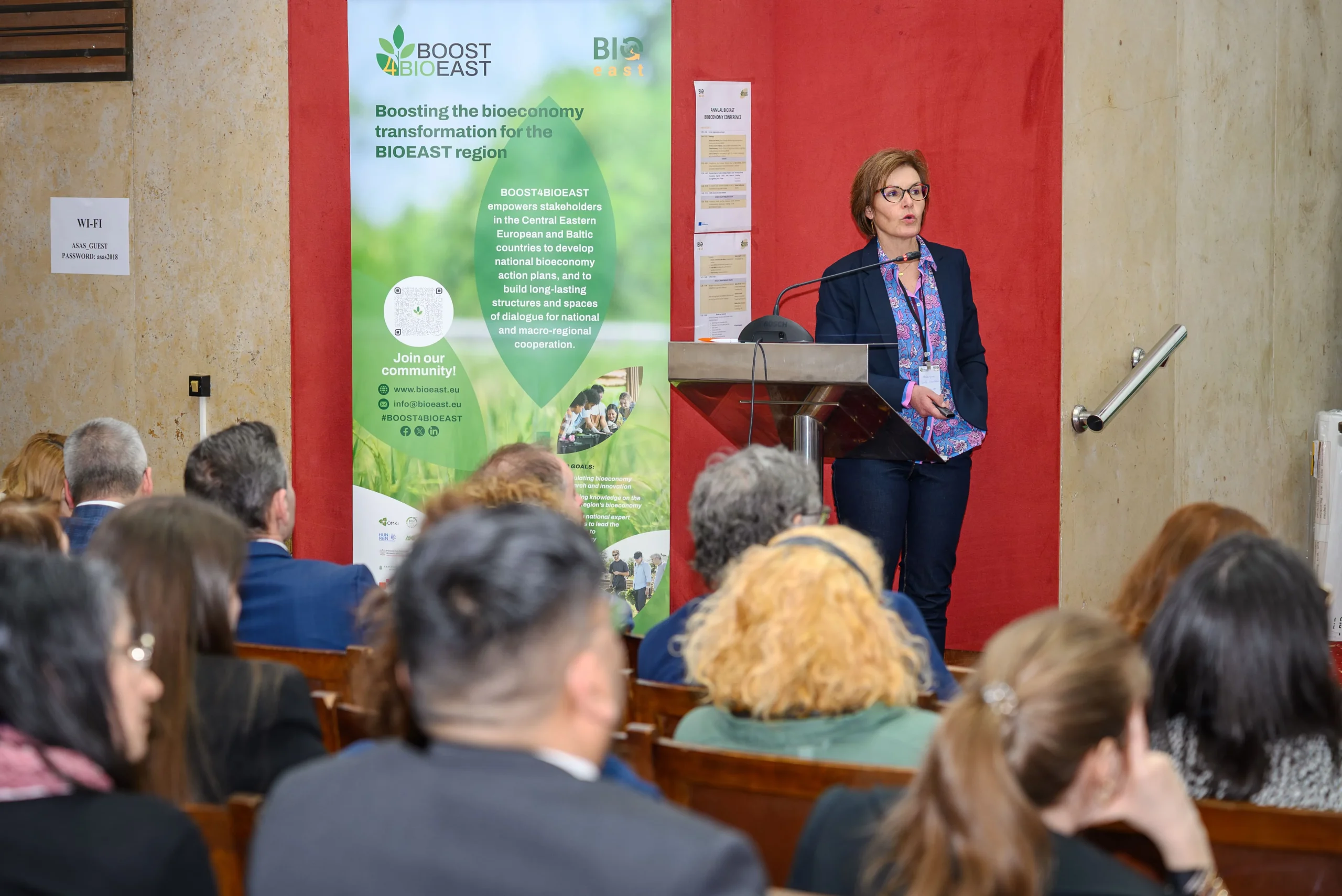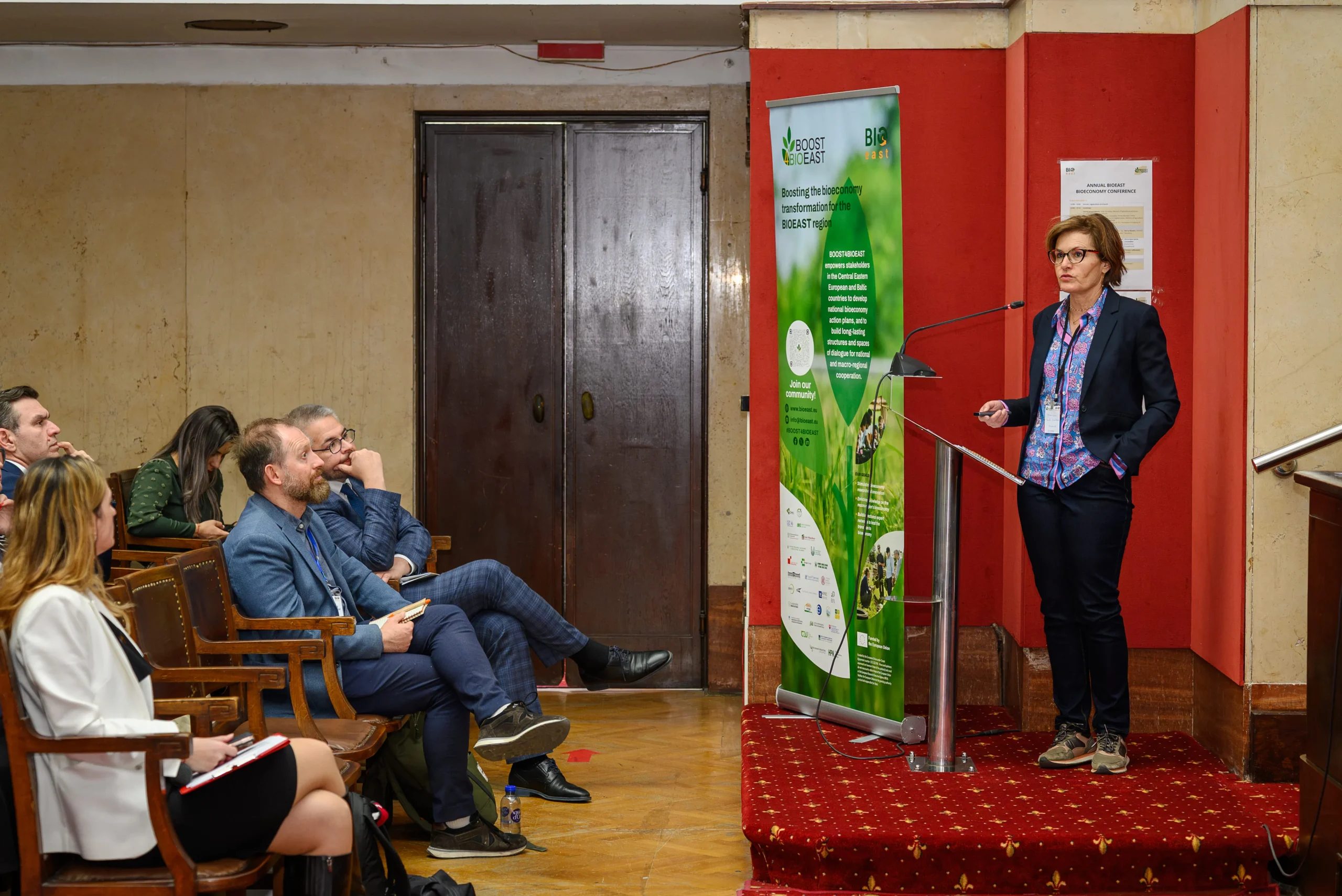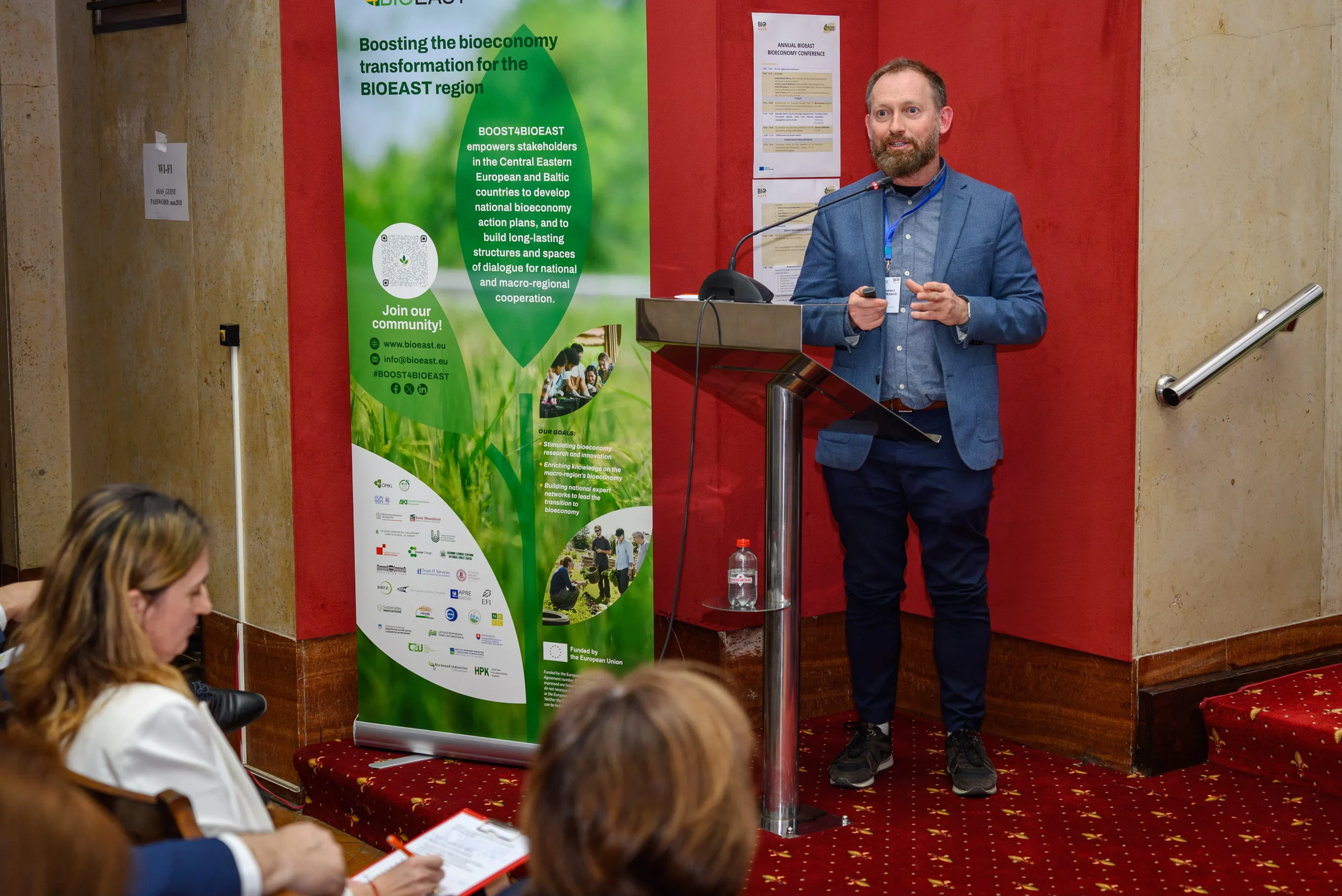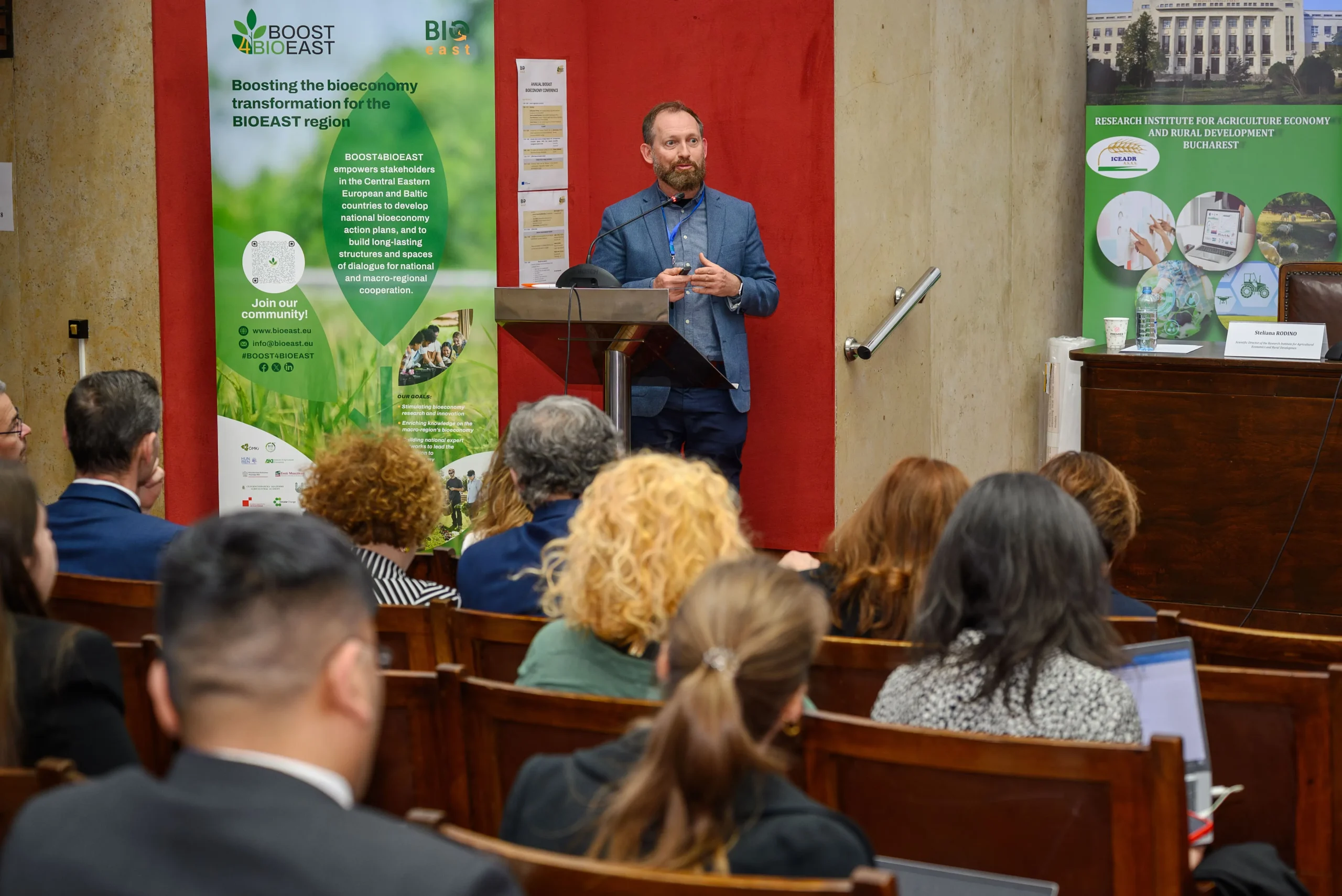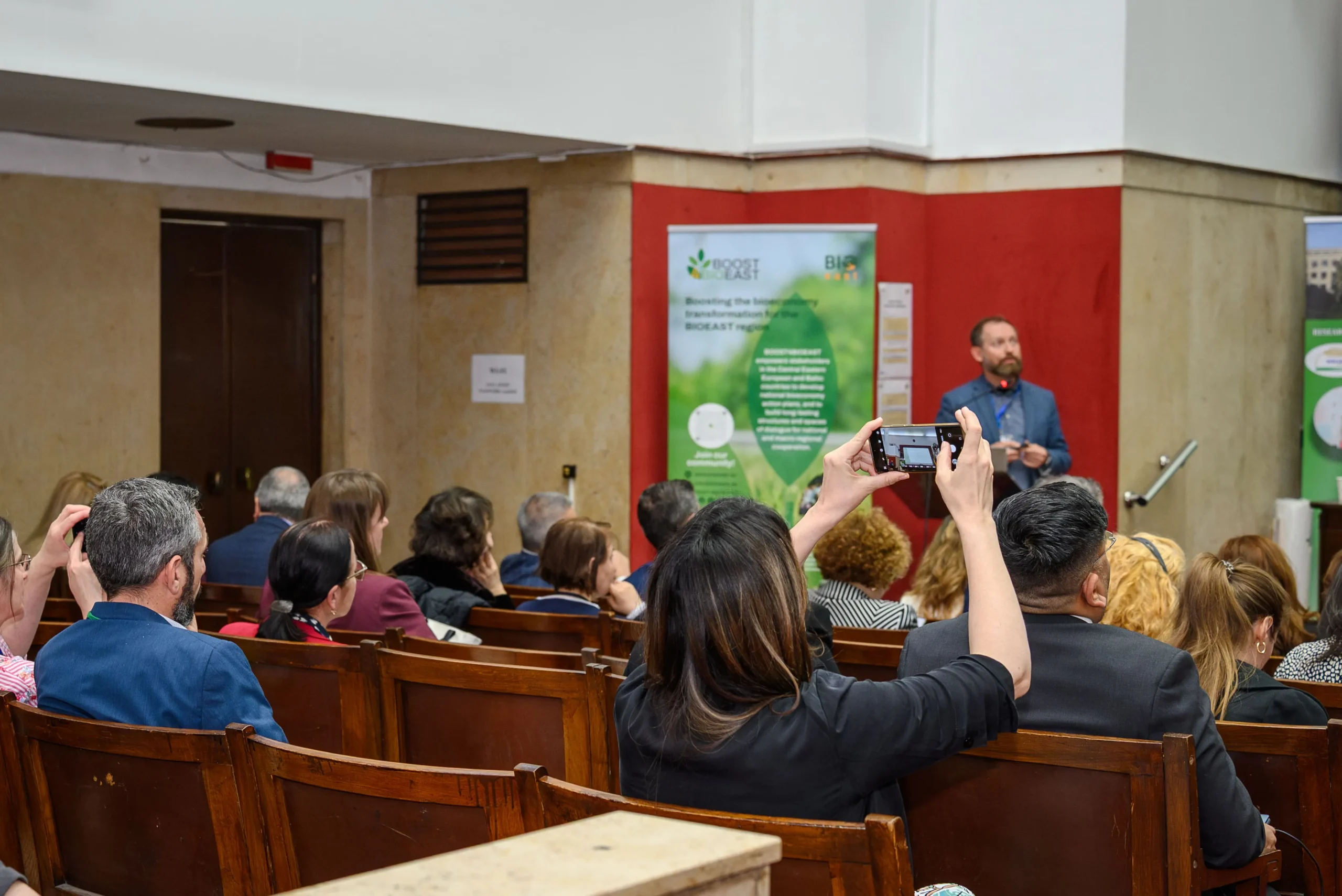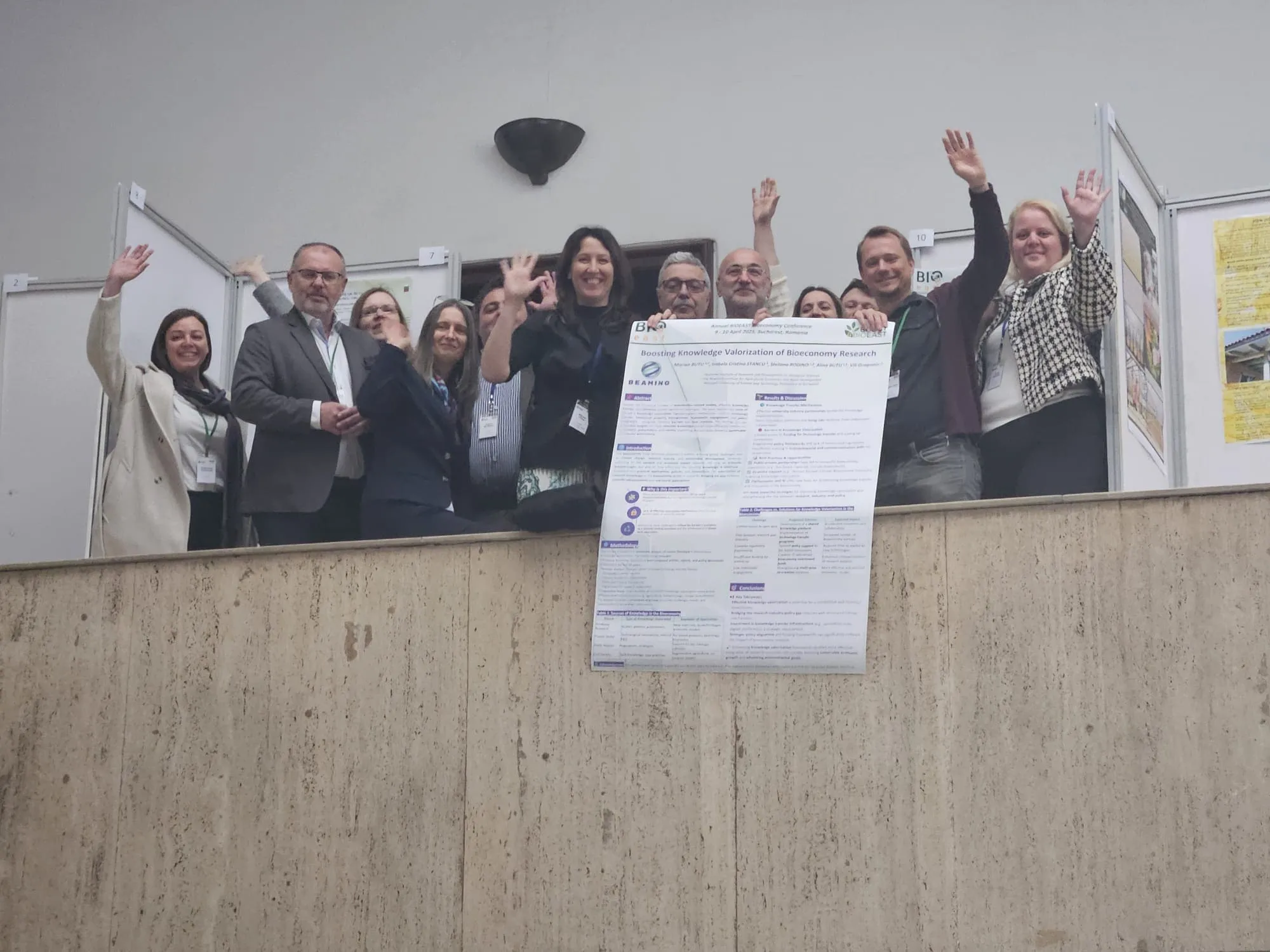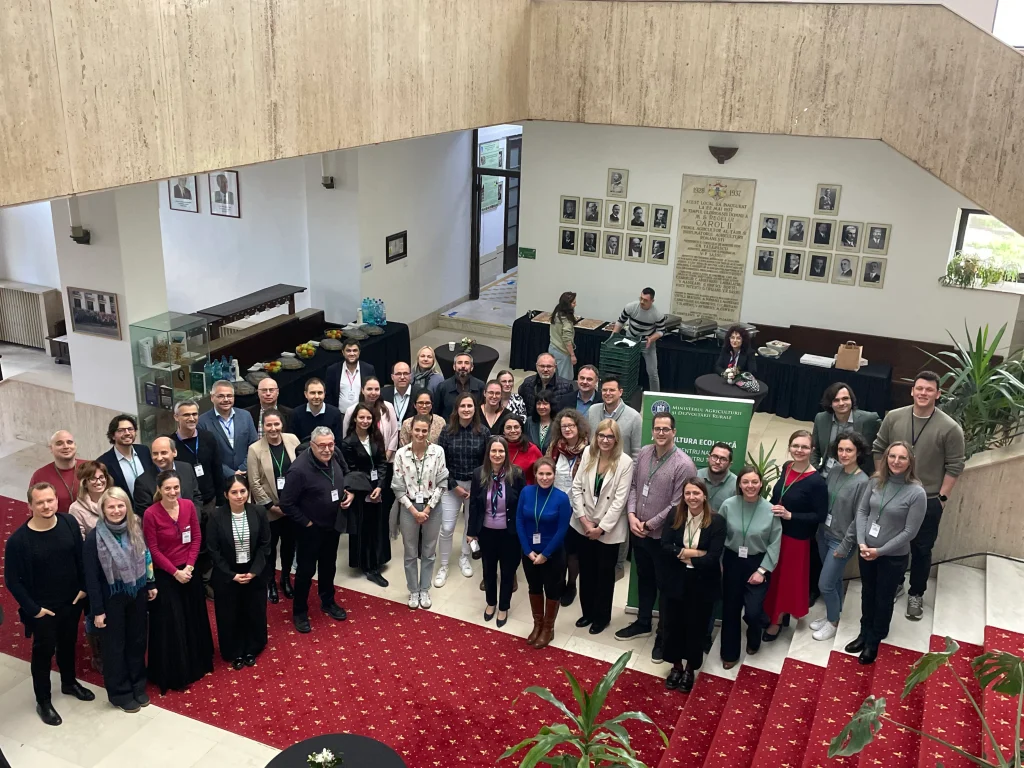
From April 7th to the 9th, the BOOST4BIOEAST (B4B) project meeting and the Annual BIOEAST Bioeconomy Conference, held at the Academy of Agricultural and Forestry Sciences in Bucharest successfully brought together more than 180 stakeholders from across Central and Eastern Europe (CEE) to initiate discussions on the renewal of BIOEAST-specific research and innovation priorities.
At the annual project meeting (8–9 April), all 30 partners of the B4B consortium took stock of last year’s progress and prepared for upcoming activities. During the past year, B4B marked significant progress with the kick-off of 9 national HUBs (11 in total), the renewal of BIOEAST website and launch of the Knowledge Platform along with 11 mini-HUB pages. Significant preparatory work has been done by the launch of multidimensional mapping in all HUBs to assess macro-regional bioeconomy competences, biomass availability, educational needs and innovation systems. Moreover, the methodologies for the development of national Action Plans and update of the BIOEAST Strategic Research and Innovation Agenda (SRIA) have been established. The main goals for 2025 are to strengthen and animate national HUBs in an engaging manner, starting the Action Plan development process for the 11 BIOEAST countries, shaping the next phase of the BIOEAST SRIA and organizing an impactful Open Innovation Challenge with pitching events across the macro-region.
After the project meeting, the Annual BIOEAST Conference (9–10 April), co-organized by the B4B project and the BIOEAST Initiative served as a critical milestone in revising the SRIA. The event focused on aligning macro-regional research and innovation (R&I) priorities with emerging EU strategies and policy developments, while reflecting the unique needs of the CEE macro-region.
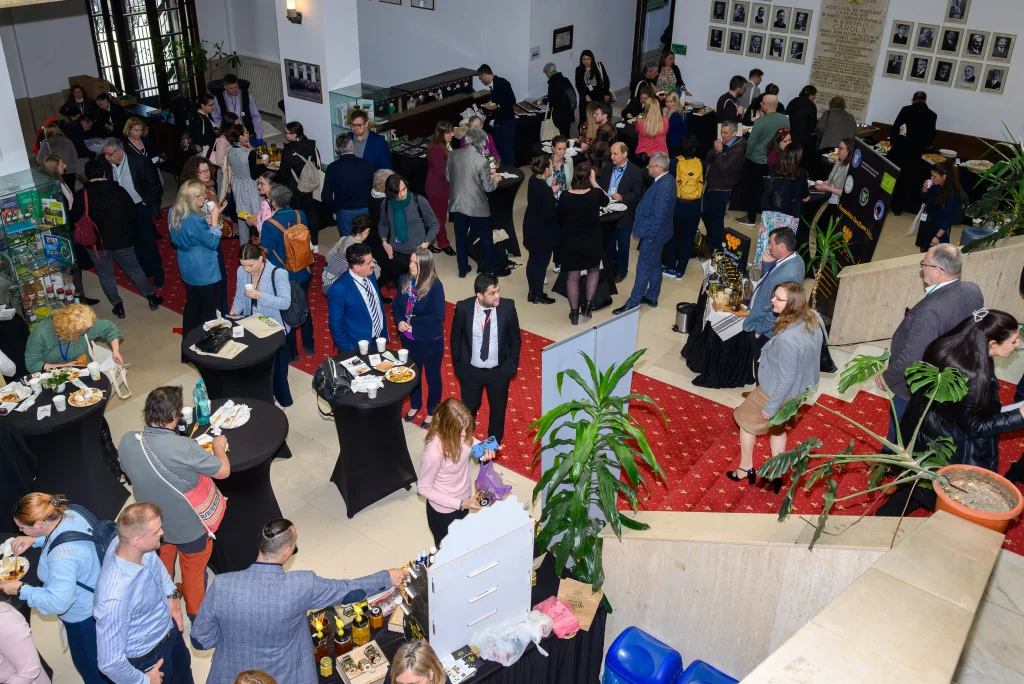
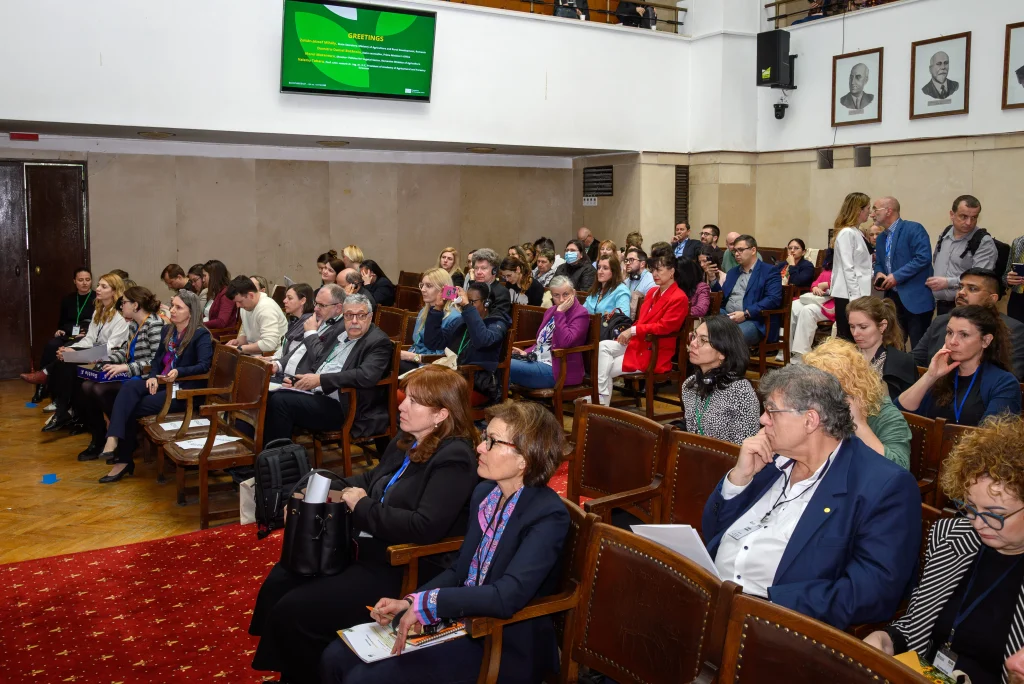
The conference was opened by Zoltán-József Mihály, State Secretary and Viorel Morarescu, Director for Vegetal Sector of the Ministry of Agriculture and Rural Development, Dumitru-Daniel Botănoiu, State Counsellor of the Prime Minister’s Office, and Valeriu Tabara, President of the Academy of Agricultural and Forestry Sciences.
Barna Kovács, Secretary of the BIOEAST Initiative, opened the plenary with a call to strengthen the European Research Area through an enhanced bioeconomy R&I ecosystem. Looking ahead to 2025, Mr. Kovács described it as a pivotal year for the Initiative. He noted a significant shift in the EU bioeconomy landscape—from being research-driven to being oriented around market competitiveness and sustainability. He connected this to broader policy discussions, including post-2027 CAP reforms, the design of the next Research and Innovation Framework Programme (FP10), and upcoming Council presidencies, all of which are increasingly focused on issues of security, competitiveness, and sustainability. He concluded with three core questions intended to guide the strategic discussions of the coming year: whether the biomass of the CEE is being recognized as critical for Europe’s sustainability and competitiveness; whether the gaps facing the region are being adequately documented and addressed; and whether political and financial commitment exists to ensure that bioeconomy-related research and innovation can thrive long-term.
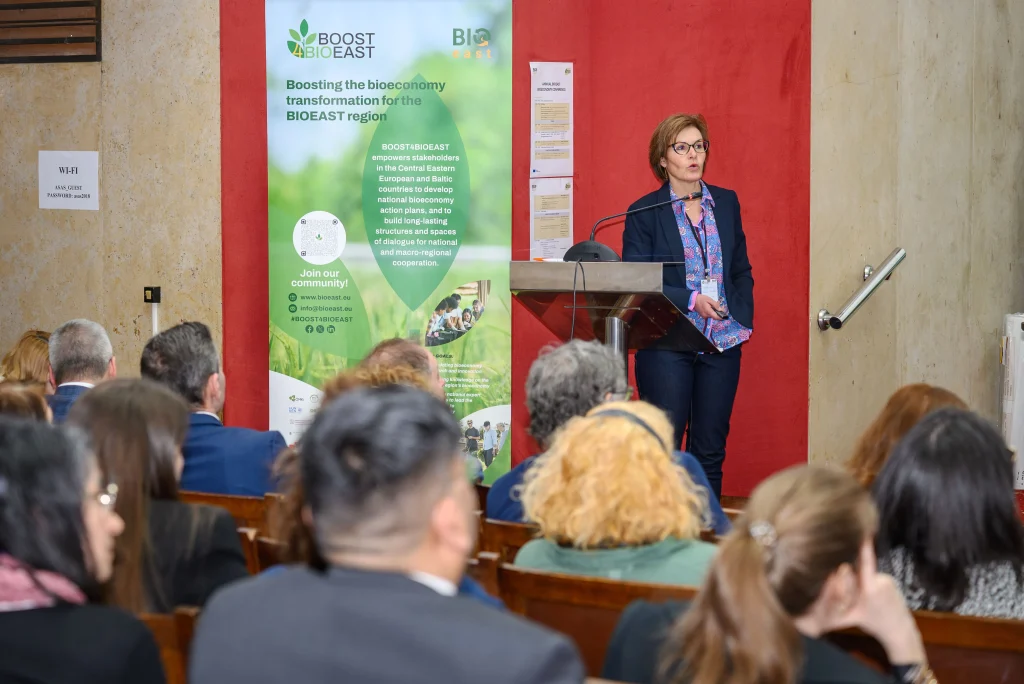
Keynote speaker Veronique Sante-Lhoutellier from the FutureFoodS Partnership – a long-term European co-funded partnership running from 2024 to 2034 aimed at transforming food systems toward sustainability – offered insights on building effective SRIA from a research management perspective. She stressed the importance of collaboration and ongoing stakeholder engagement. The methodology used in developing the SRIA—particularly its focus on co-design, multi-stakeholder involvement, and a systems perspective—sets a model for how complex societal challenges like food security and production sustainability can be addressed through research-driven partnerships.
Tomasz Calikowski from DG RTD provided an in-depth look at the European Commission’s current thinking and plans regarding the revision of the EU Bioeconomy Strategy (the public consultation is currently open for the Strategy until 23 June). He highlighted the strong alignment with the BIOEAST Initiative. Recent Council conclusions under the Hungarian presidency explicitly supported a Europe-wide R&I initiative to advance sustainable natural resource management and bioeconomy development, particularly in the CEE. Several recent events, including the “BIOEAST and Beyond” conference and various SCAR working group meetings, have informed the strategy’s direction. The 2025 work programme for Horizon Europe Cluster 6 includes a specific draft topic aimed at enhancing bioeconomy R&I in BIOEAST countries, with a focus on soil and water resilience, sustainable biomass use, and food system security. Mr. Calikowski closed by reaffirming the importance of aligning EU policies with regional realities, and by calling for continued engagement as the bioeconomy becomes a central pillar of Europe’s clean, circular, and competitive future.
After the plenary presentations, a science-policy panel discussion moderated by Maria Anghel from the Romanian Ministry of Agriculture showcased early findings from the BOOST4BIOEAST project’s multidimensional mapping of the bioeconomy in the macro-region, sparking valuable dialogue on knowledge gaps and policy implications. Andrea Violeta Arancibia Alfaro, from the European Forest Institute, is actively involved in strengthening national BIOEAST HUBs and leading mappings on bioeconomy education, skills, and stakeholder collaboration. Laura García, representing the German Biomass Research Centre, is leading the effort on mapping biomass use, potential and competencies (social, technological and economic). Csaba Bálint, from the Hungarian Research Institute of Agricultural Economics, is responsible for the mapping of innovation ecosystems. Dániel Ganszky, from Geonardo, represented the sister project CEE2ACT. As the project nears completion, he reflected on key achievements and explained how CEE2ACT’s results can support BOOST4BIOEAST’s mapping and Action Plan development. Panellist described the key findings from the multidimensional mapping and its connection to support decision-makers by informing the upcoming national bioeconomy Action Plans in each country.
The BIOEAST SRIA workshop formed the key part of the conference, serving as the first step in the consultative process focused on updating the SRIA of the BIOEAST Initiative.
The session began with a presentation segment, offering participants a recap of the original 2022 SRIA and highlighting why a revision is timely and necessary. Speakers Gábor Király from the Research Institute of Agricultural Economics (AKI), Valéria Csonka from the Hungarian Research Institute of Organic Agriculture (ÖMKi), and Balázs Imre from the Budapest University of Technology (BME) provided key insights drawn from the ‘BIOEAST and Beyond’ high-level conference held on 4-6 December 2024, showed the planned SRIA update process of 2025-2026 as well as reflections on new drivers in the European and regional bioeconomy landscapes. They emphasized the importance of refreshing the SRIA to remain aligned with evolving EU strategies, the European Research Area priorities, and the specific innovation needs of the BIOEAST macro-region.
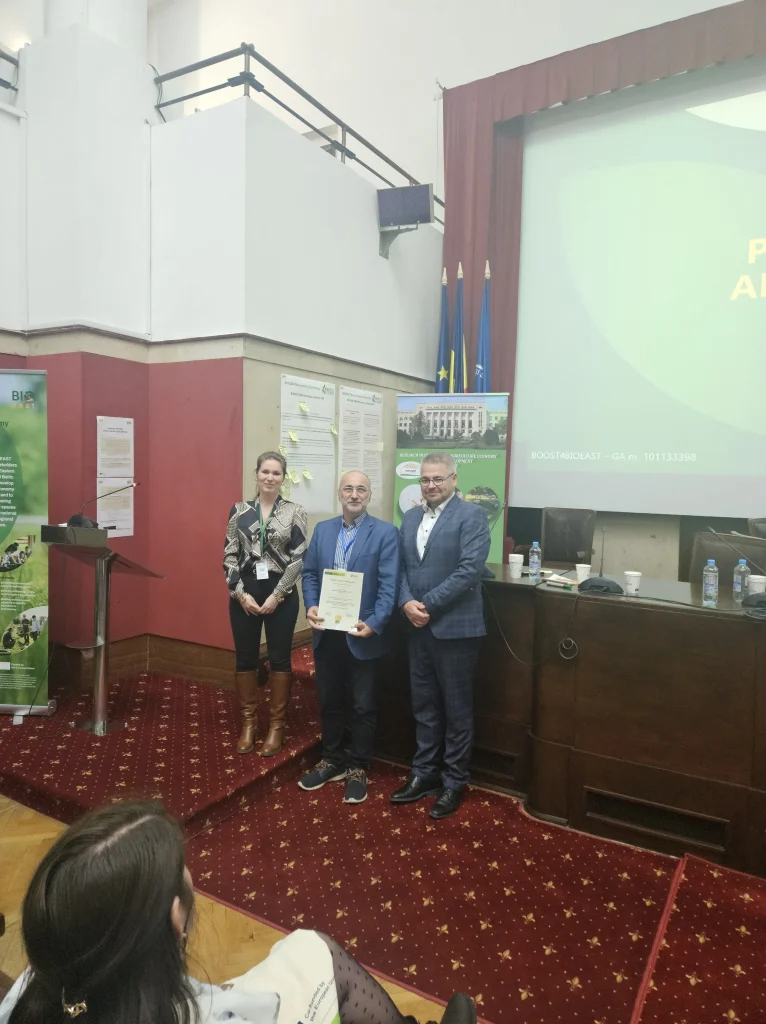
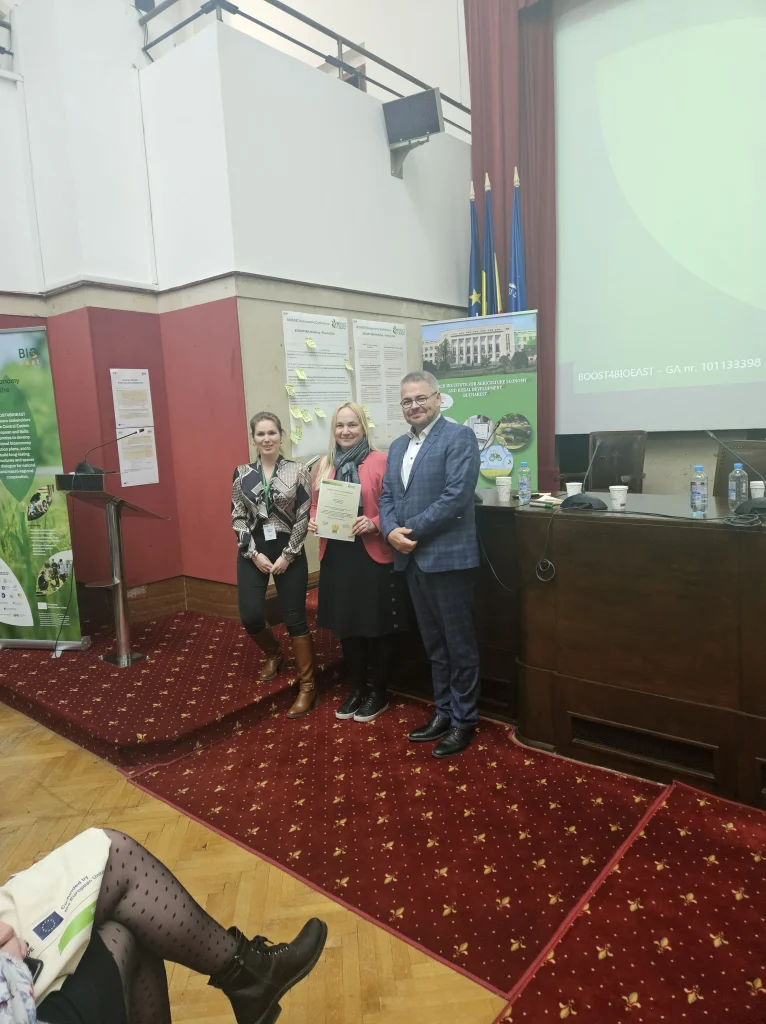
Participants then took part in thematic breakout sessions to revise strategic directions in seven thematic priority areas: agroecology, bioenergy, food systems, forestry, freshwater-based bioeconomy, education, and advanced biobased materials. These discussions provided a foundation for updating the BIOEAST SRIA. The session was designed to foster broad stakeholder engagement around revising macro-regional R&I priorities to reflect recent developments and emerging challenges across CEE.
Beyond the sessions, the conference featured a poster exhibition which showcased 26 posters on bioeconomy best practices and projects from the BIOEAST countries or relevant to the macro-region. Best Poster Awards recognized outstanding contributions to the field which were given to “Boosting the bioeconomy innovation in Baltic Sea Region (BioBoosters project)” poster presented by Katrin Kepp and Lili Veesaar from the Estonian University of Life Sciences, and to “Boosting Knowledge Valorization from Bioeconomy Research” poster presented by Marian Butu from the Romanian National Institute of Research and Development for Biological Sciences.
A field trip was also organised on 10 April to a newly set up local food bank with composting station which organises food distribution to sensitive and disadvantaged groups along with food education programs for children within Bucharest belonging to the municipality. In the afternoon, closed meetings of the BIOEAST Thematic Working Groups (TWGs) took place to discuss activities for 2025 and progress in updating the BIOEAST thematic SRIAs.
The conference was part of a series of events, organized back-to-back with the meetings of the BIOEAST Board, TWG Coordinators and B4B annual project meeting making the week between 7-10 April specifically dedicated to BIOEAST in Bucharest. By fostering collaboration among national networks, funders, researchers, and policy actors, the conference marked a significant step toward a more connected and impactful bioeconomy in CEE.
We would like to thank all speakers and participants for offering their insights and ideas on shaping the future of the macro-region’s bioeconomy and hope to meet again next year in Croatia.
Conference related materials are available on the BIOEAST Knowledge Platform here.
